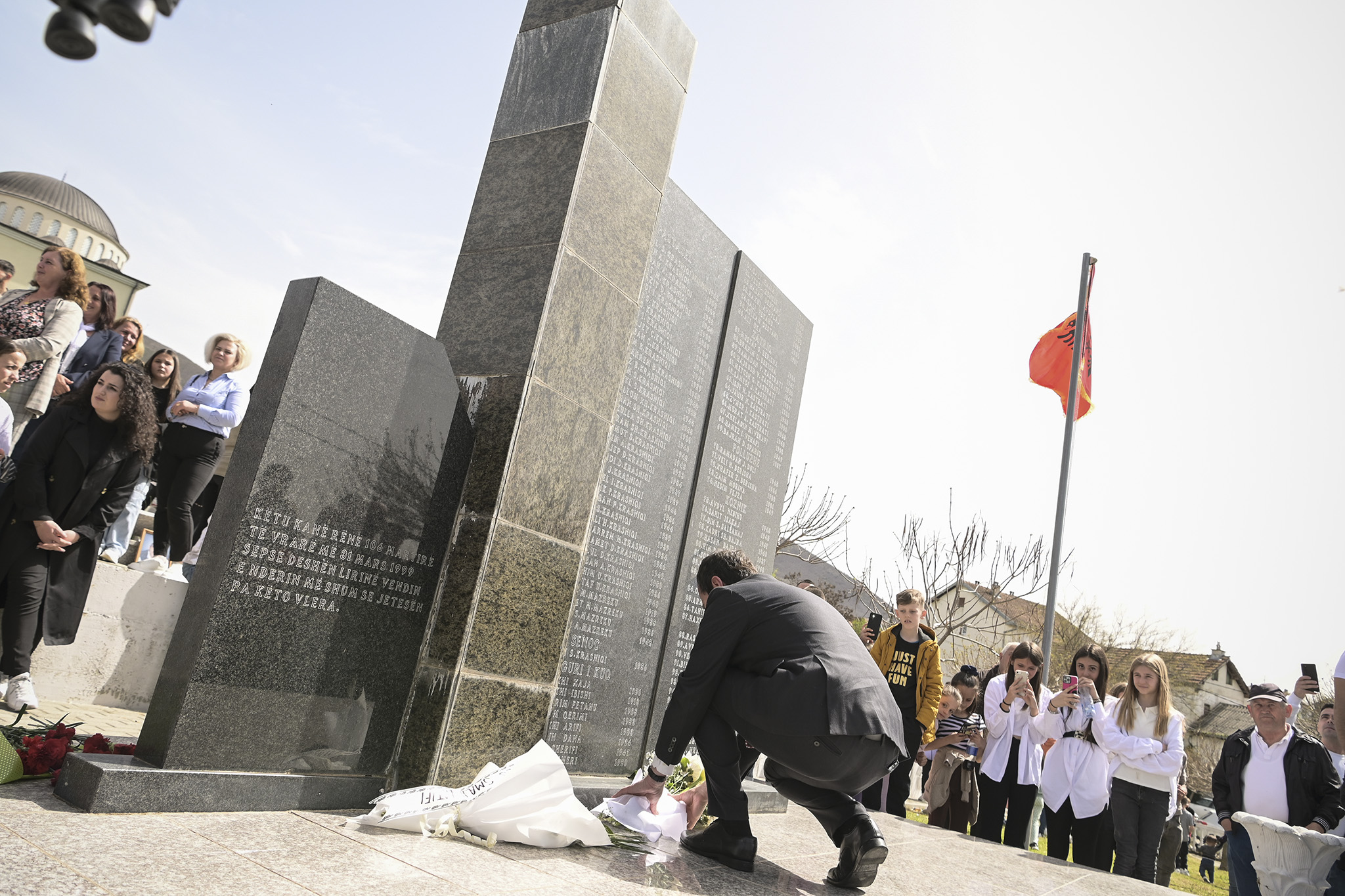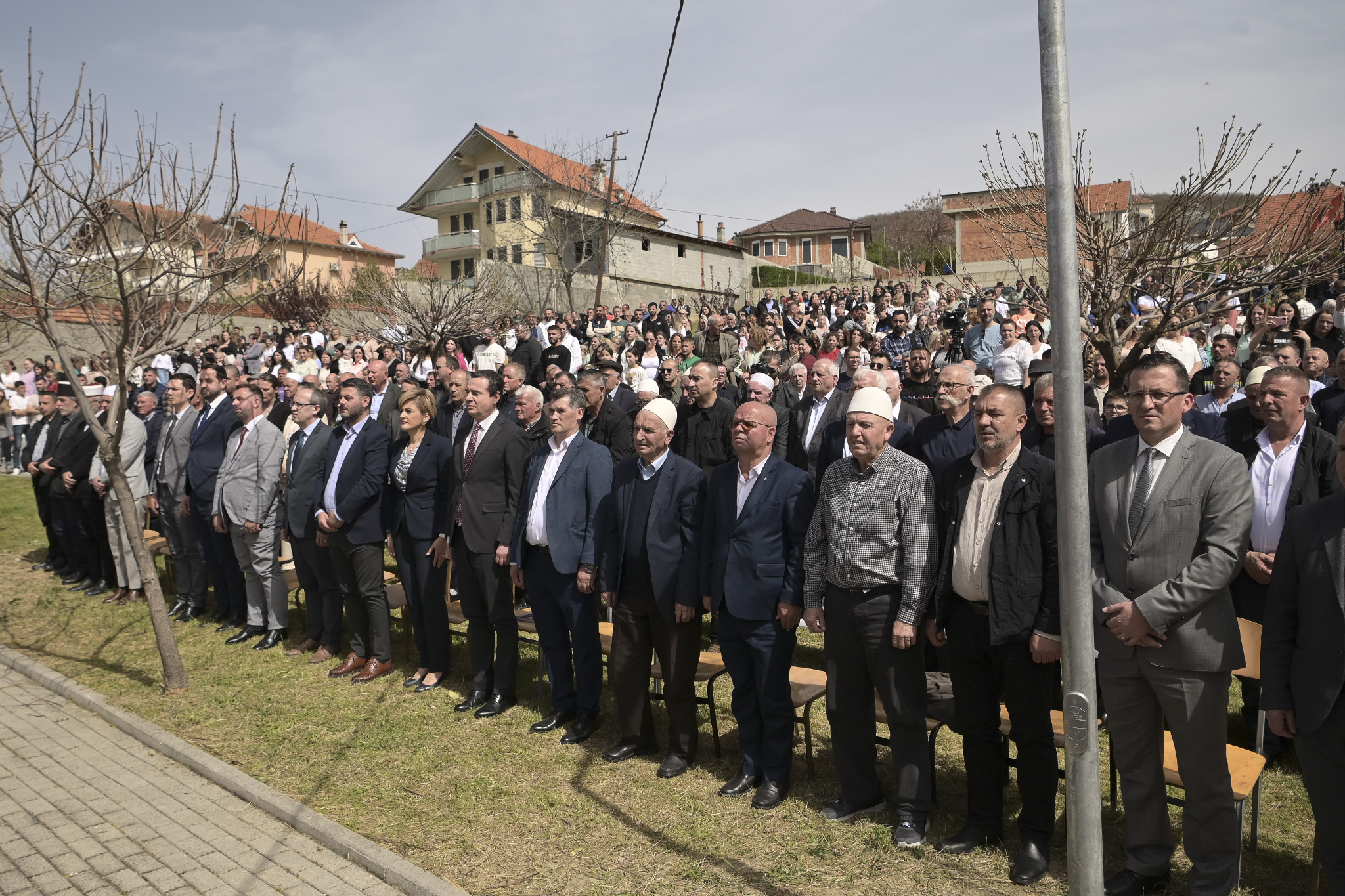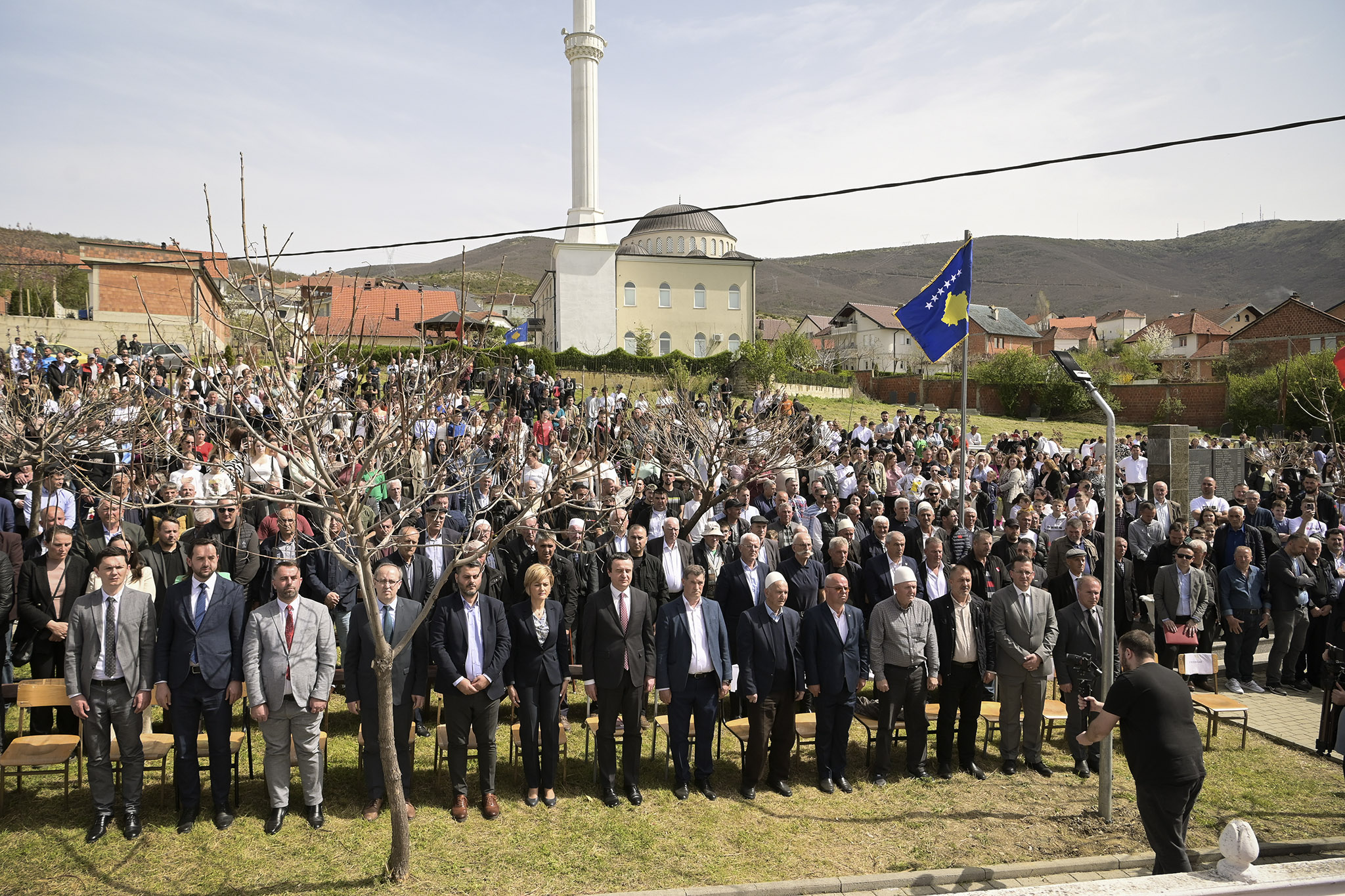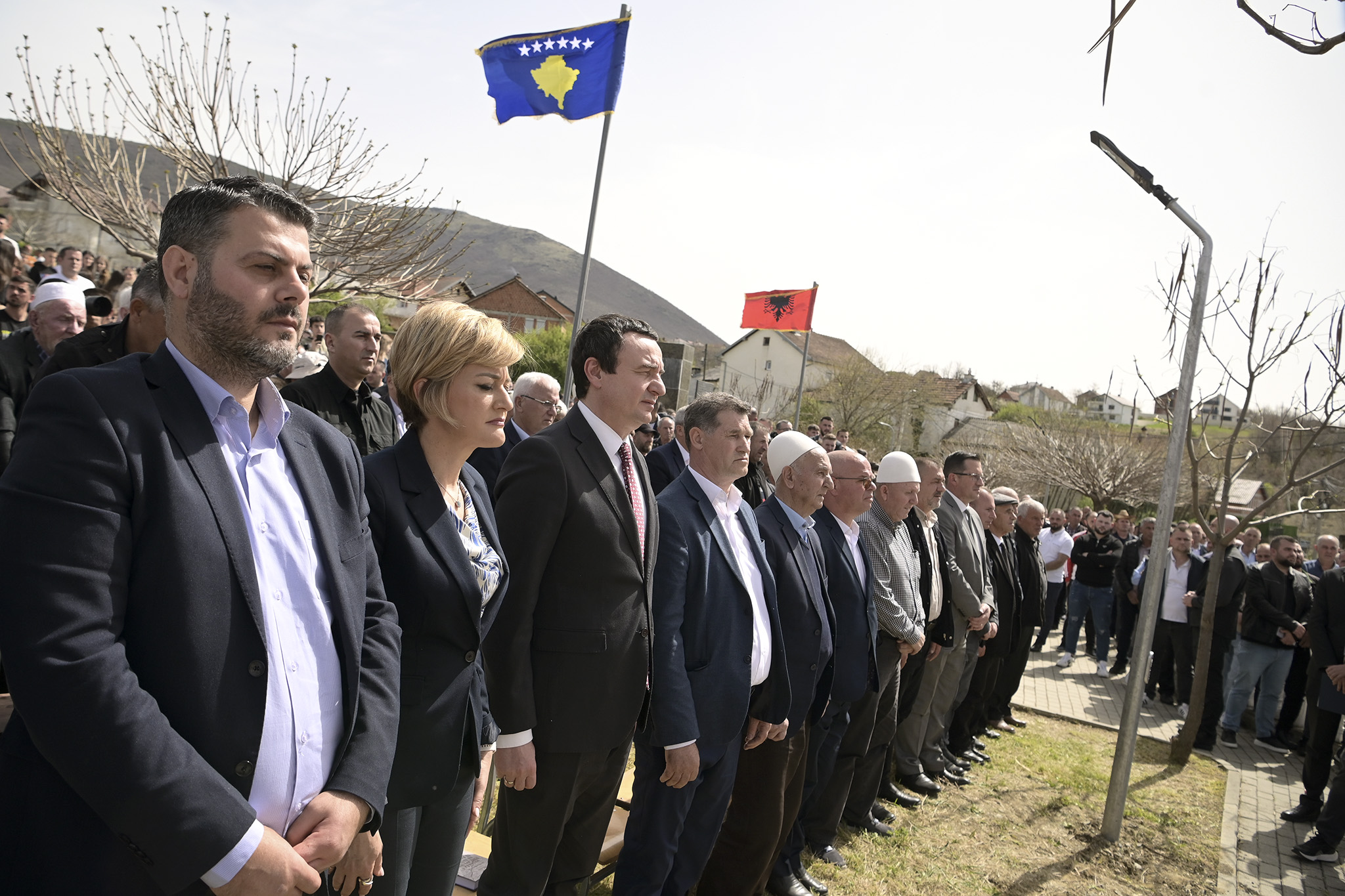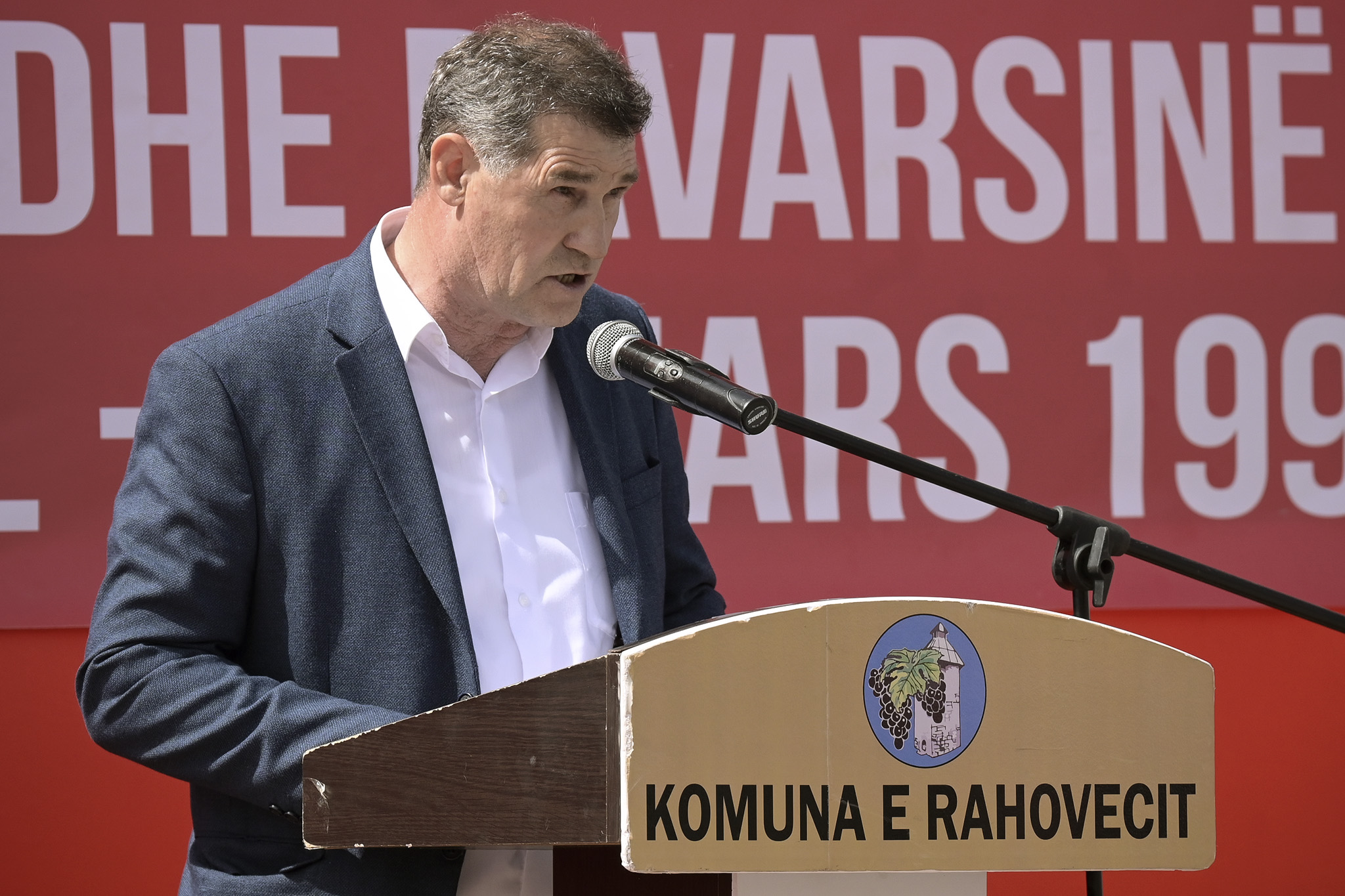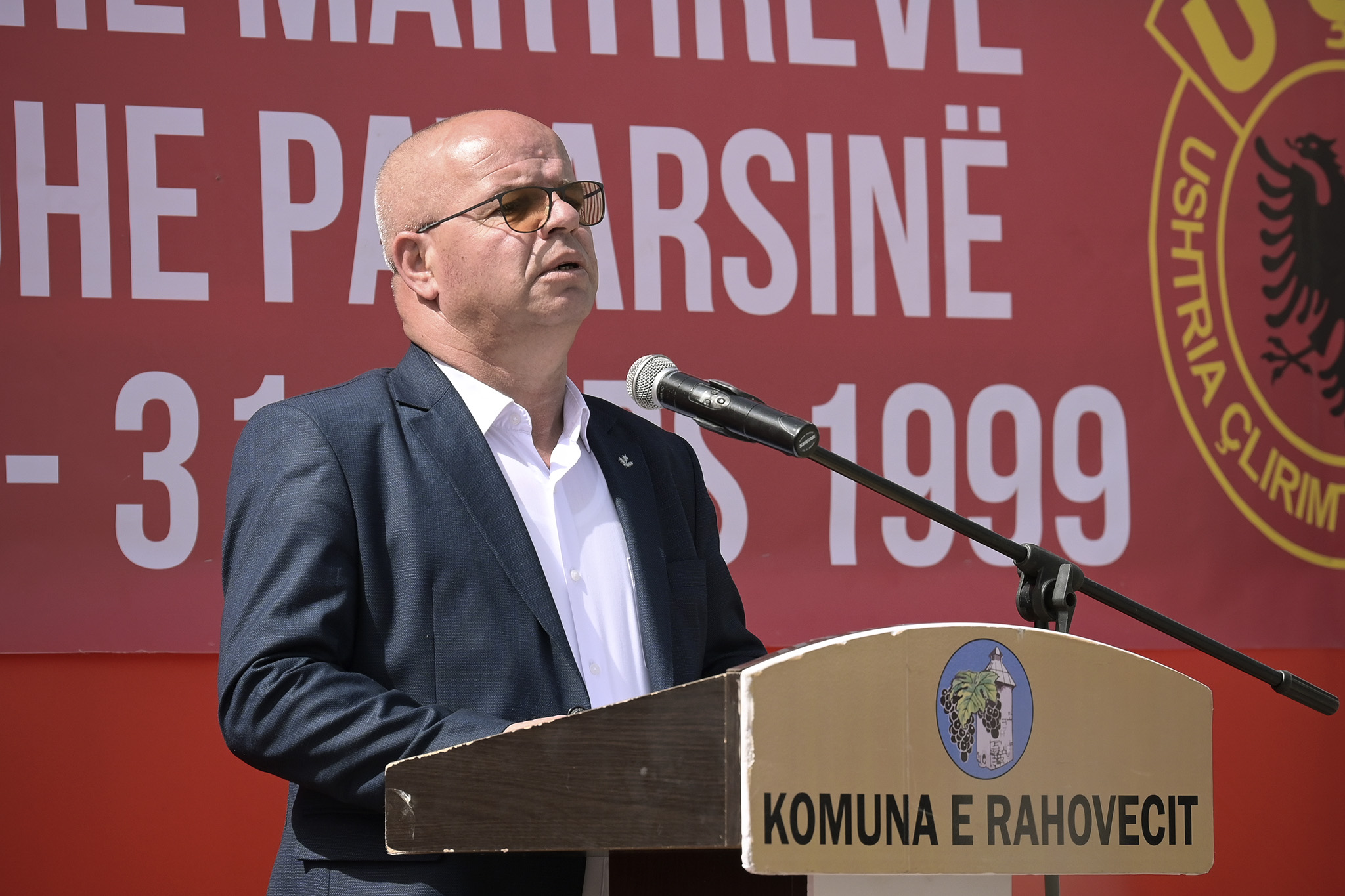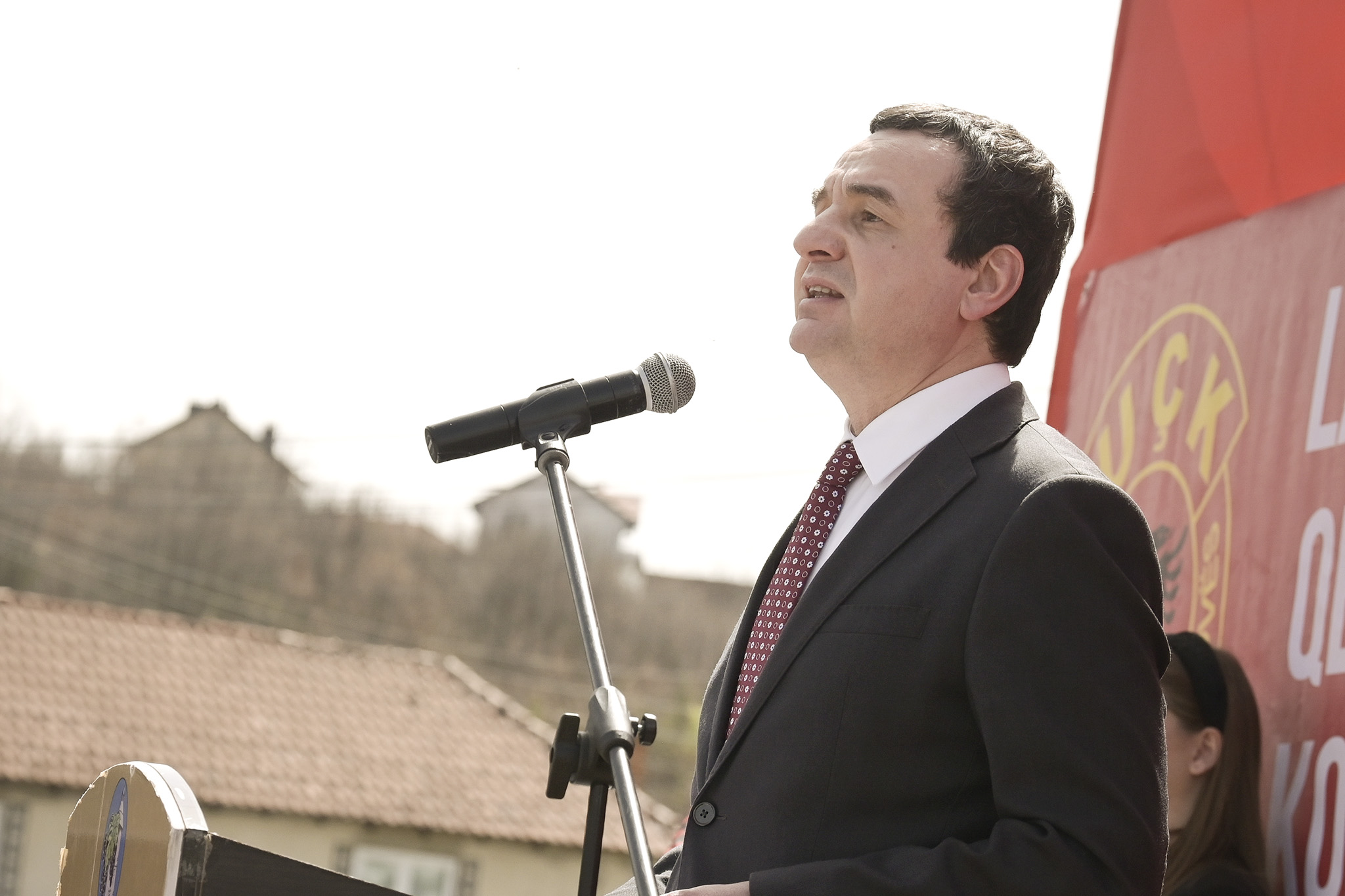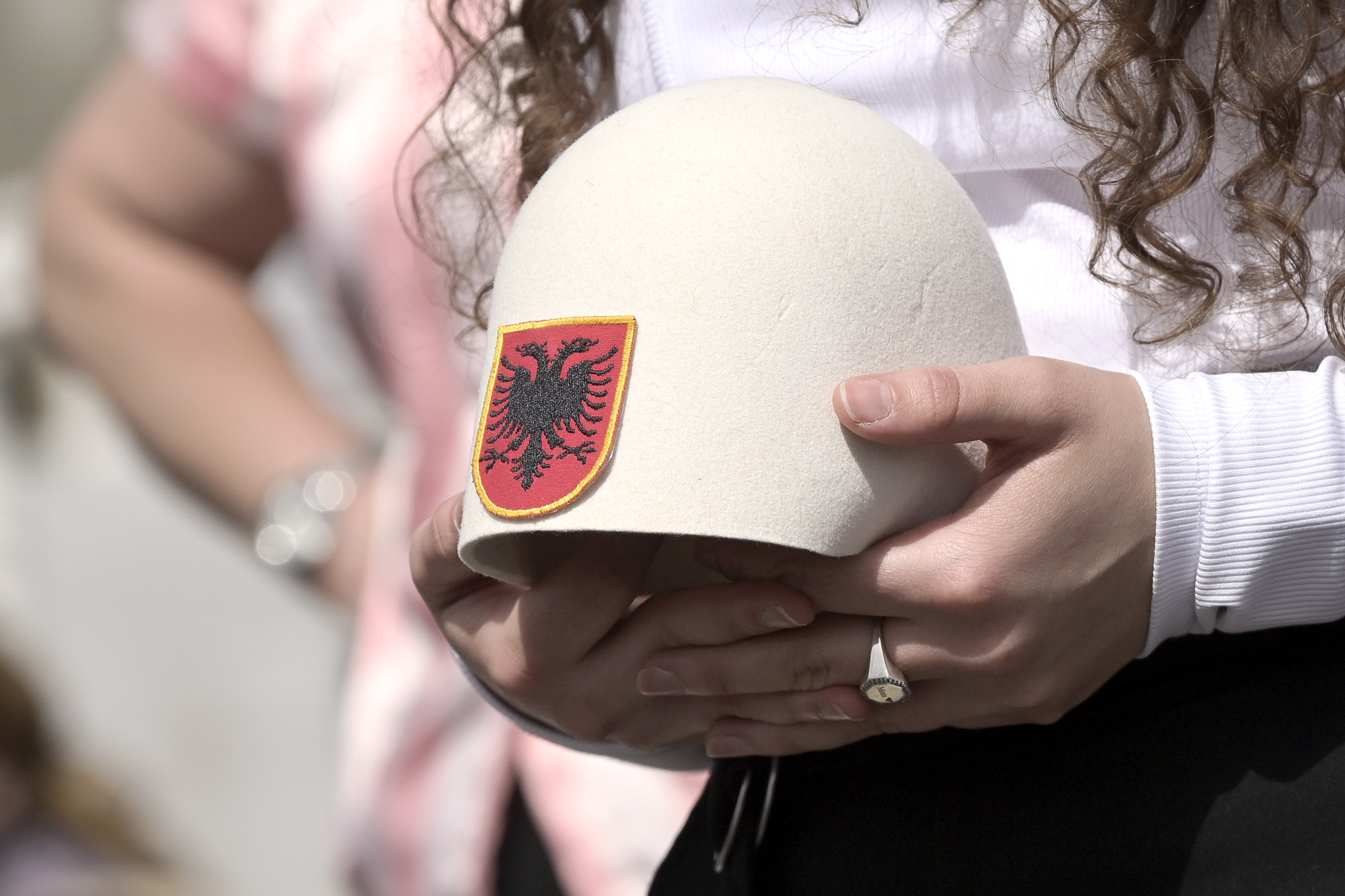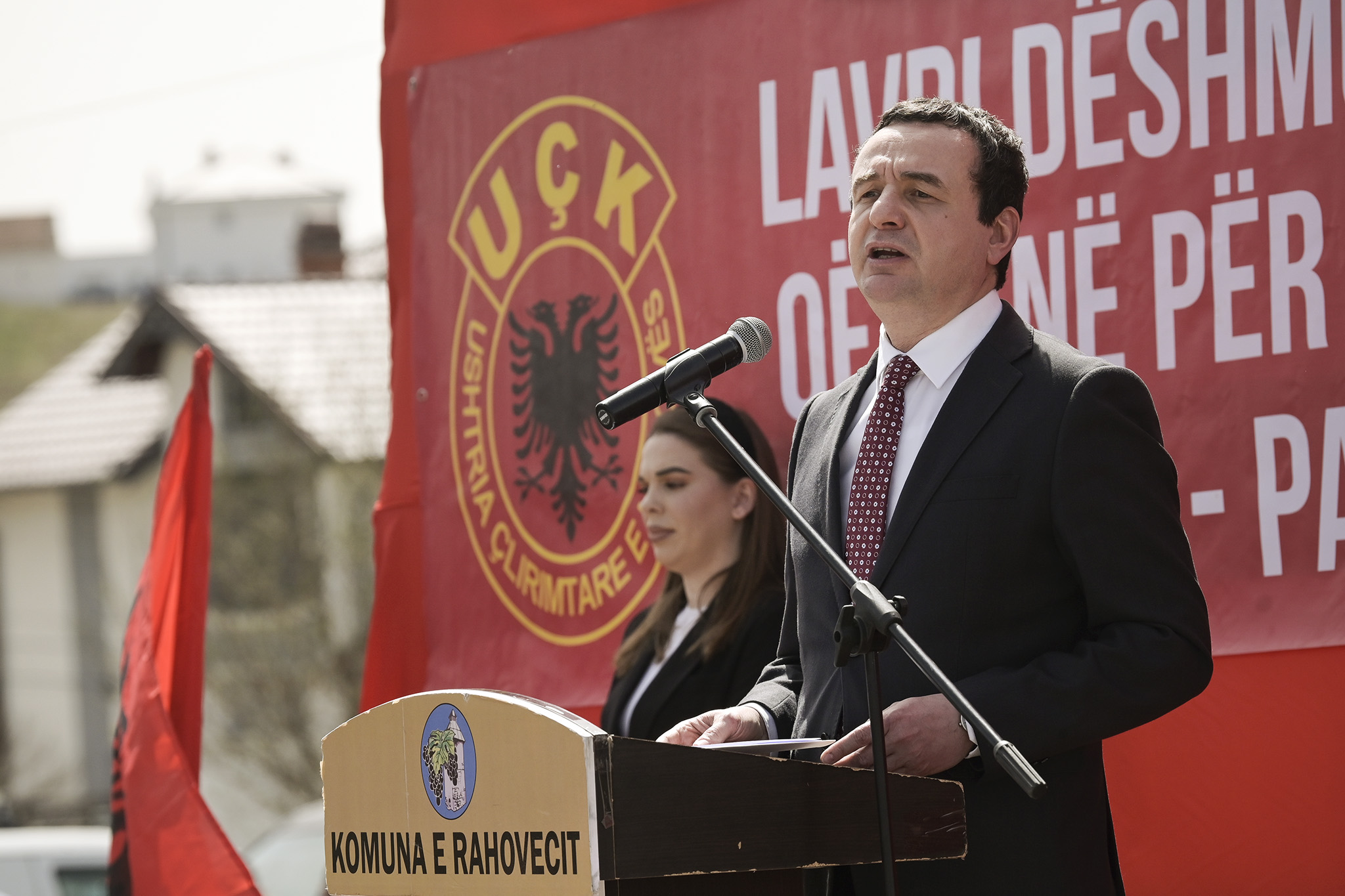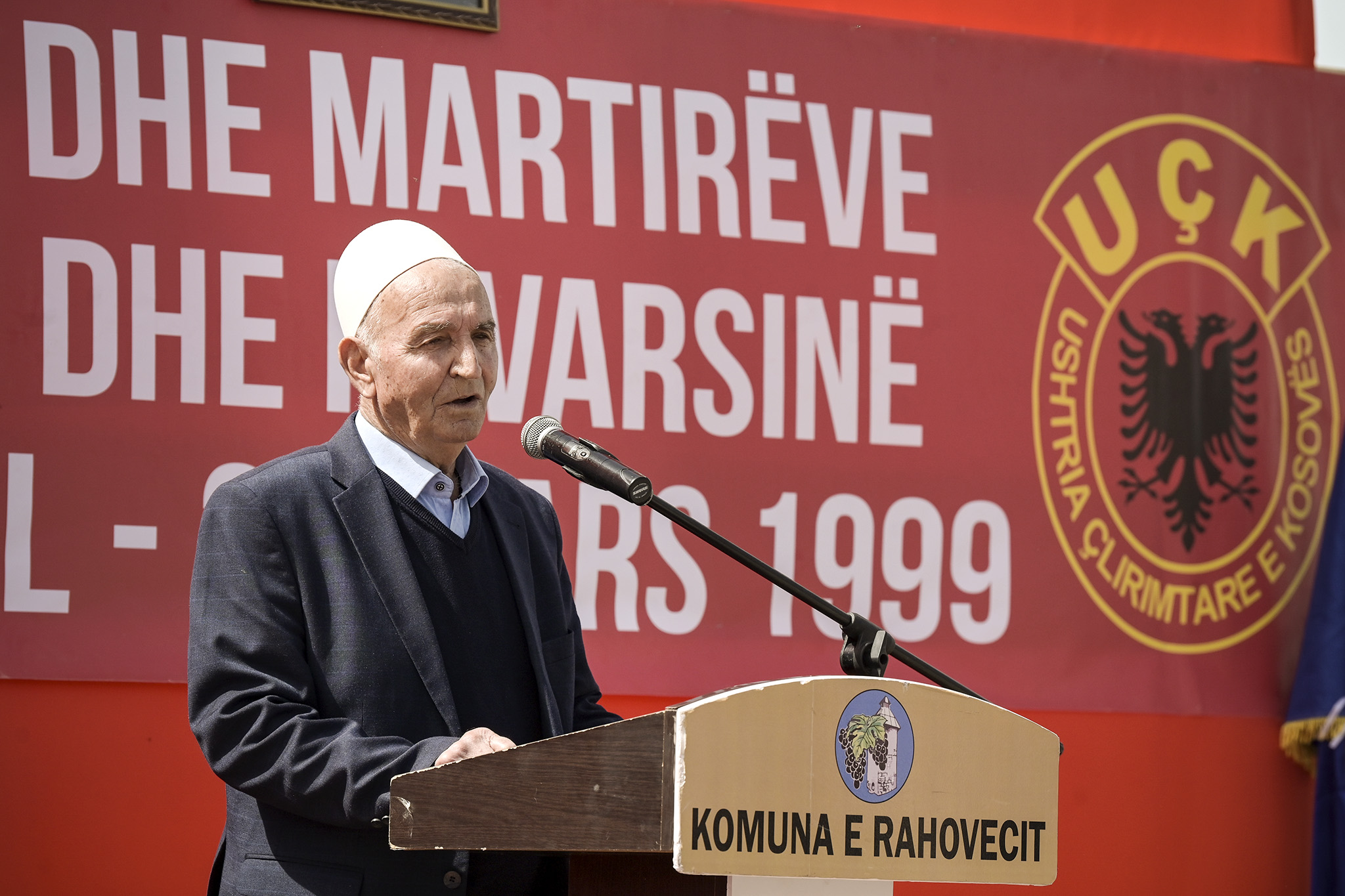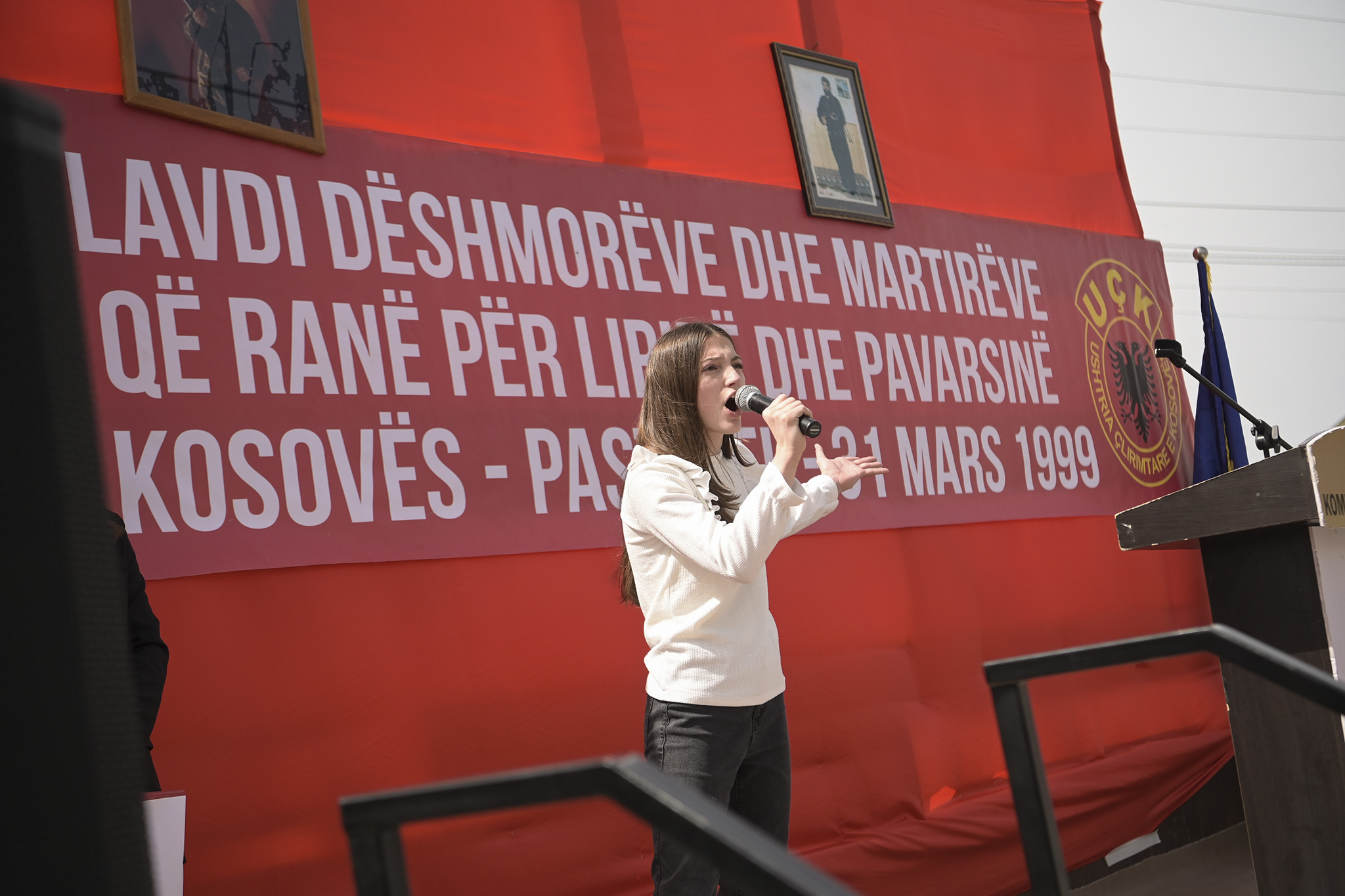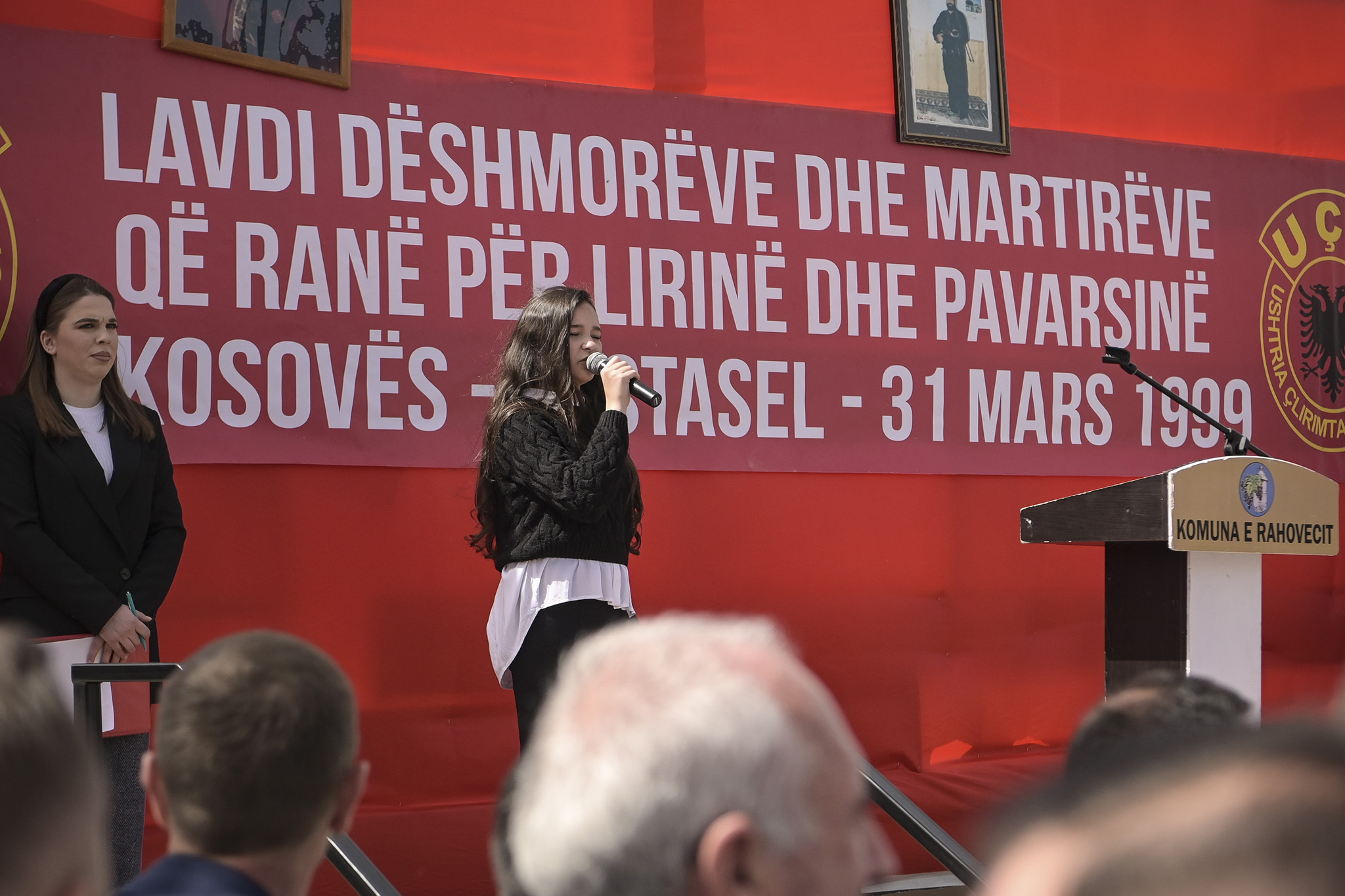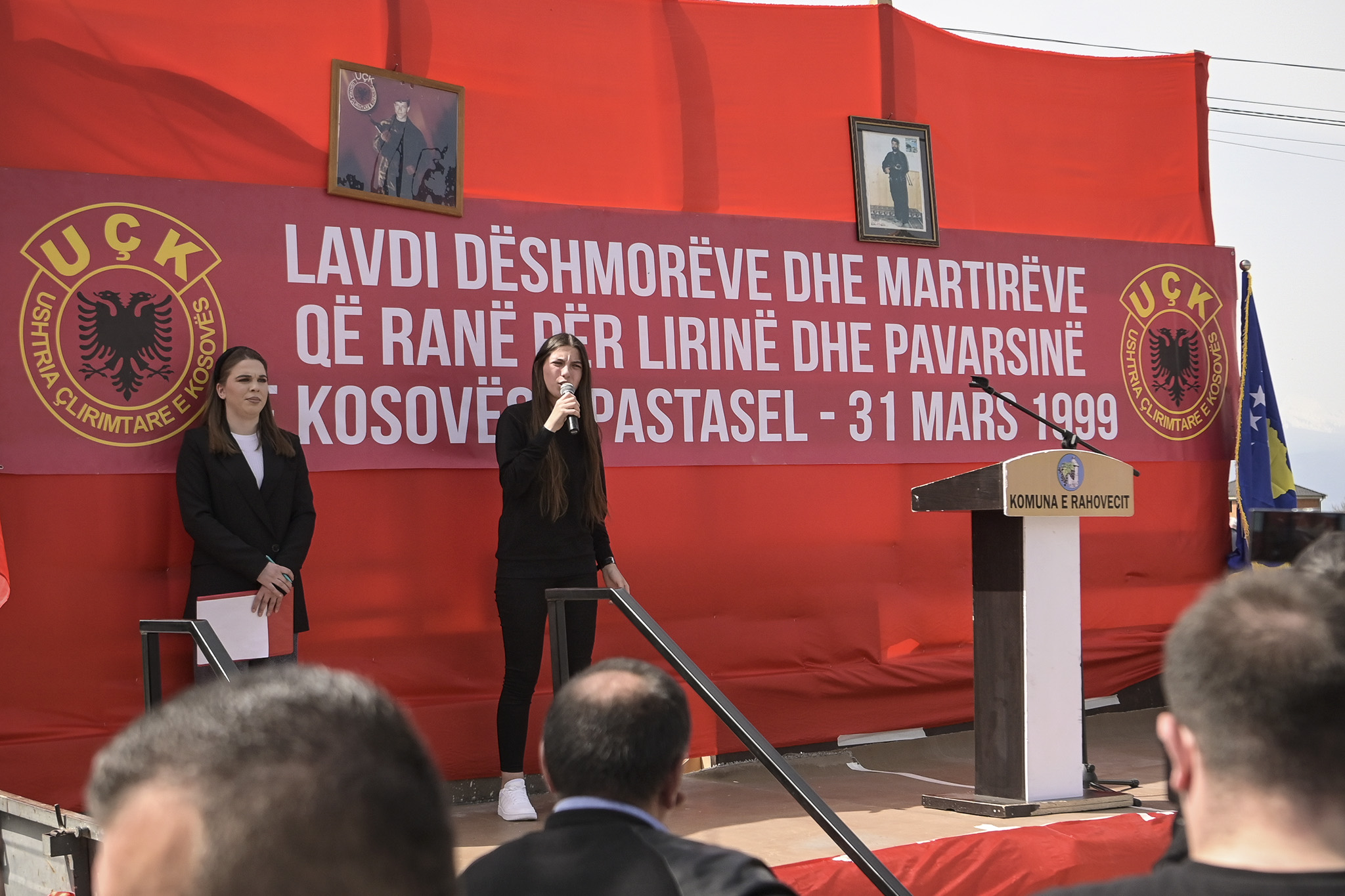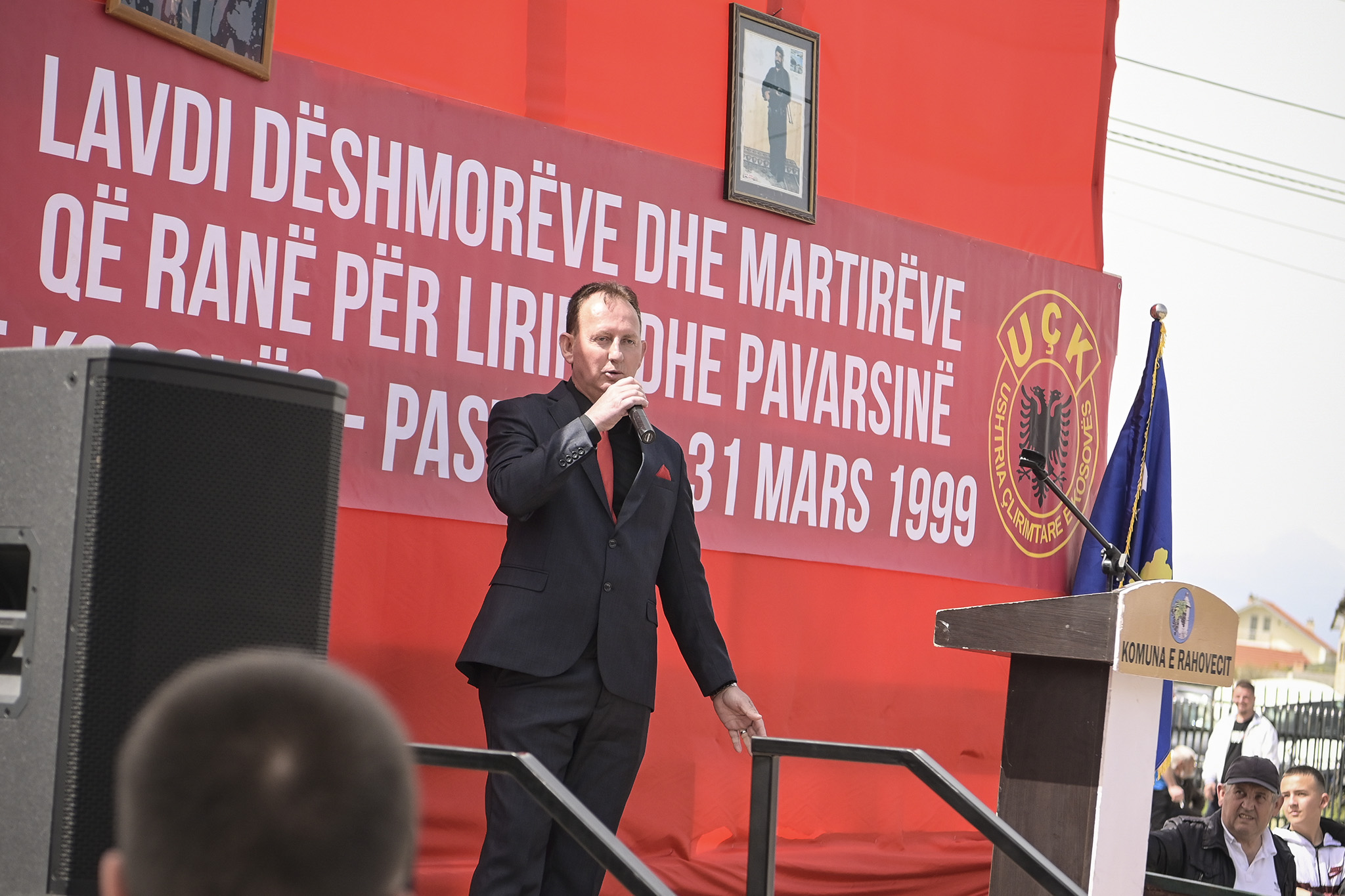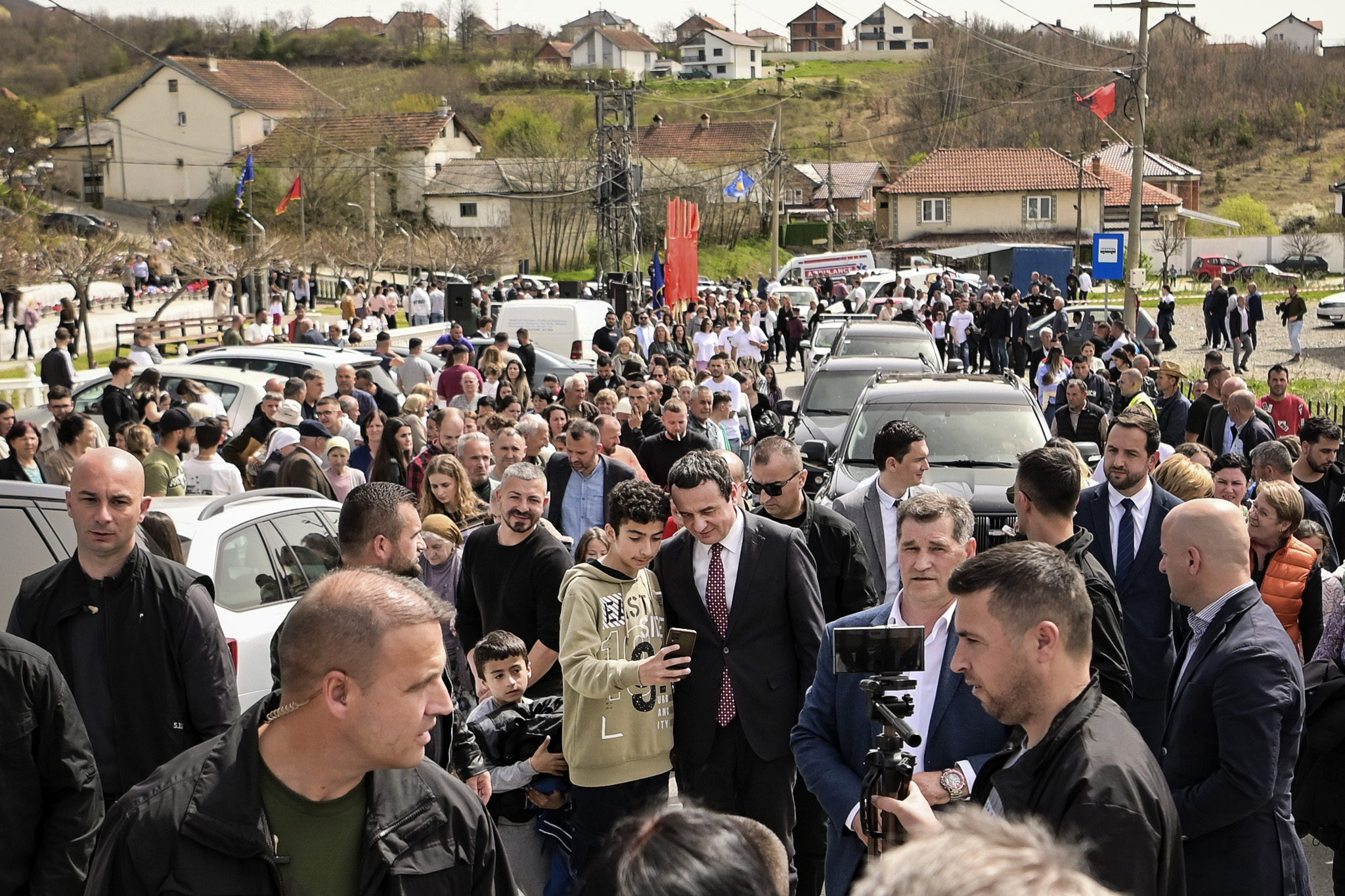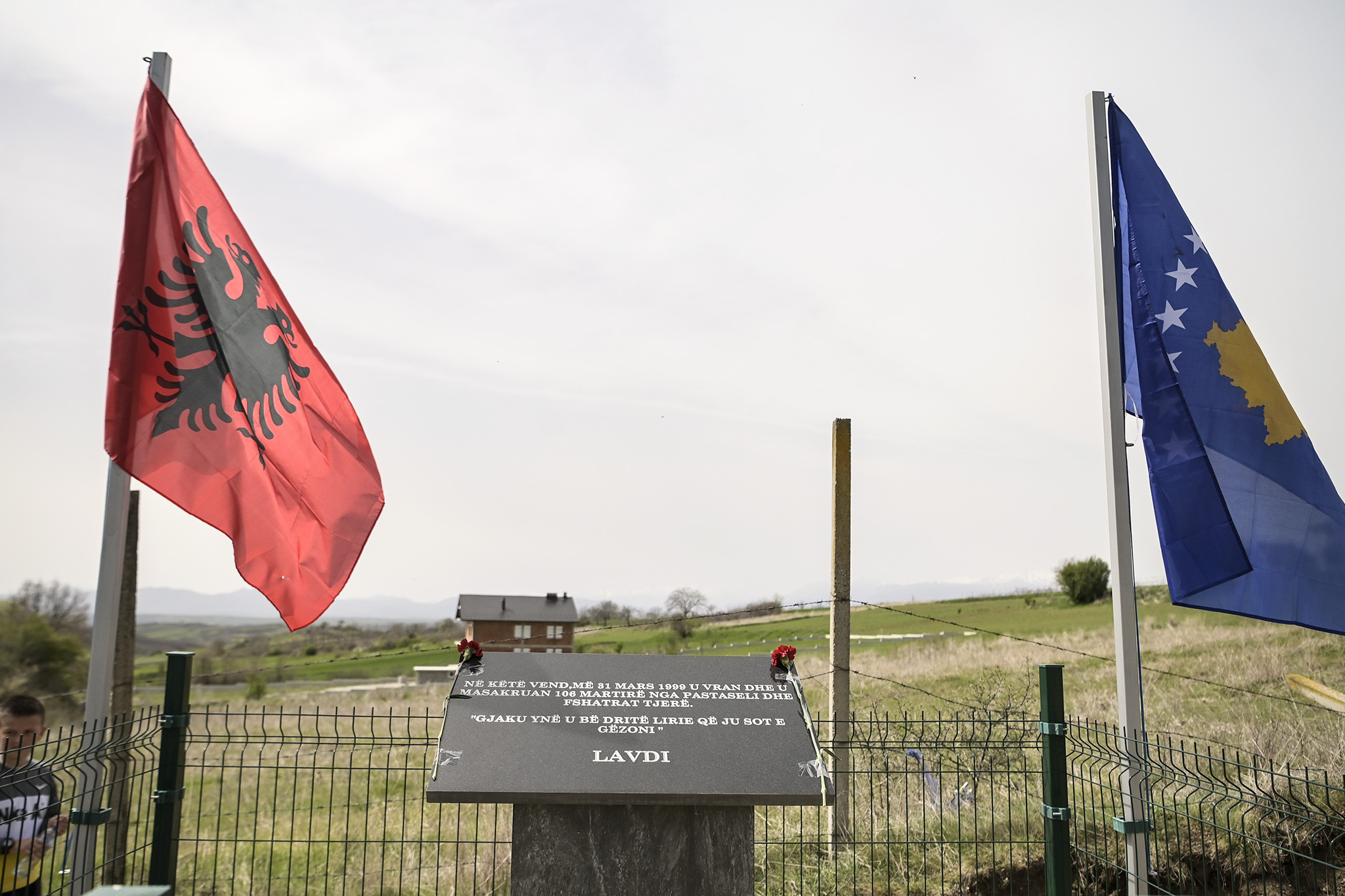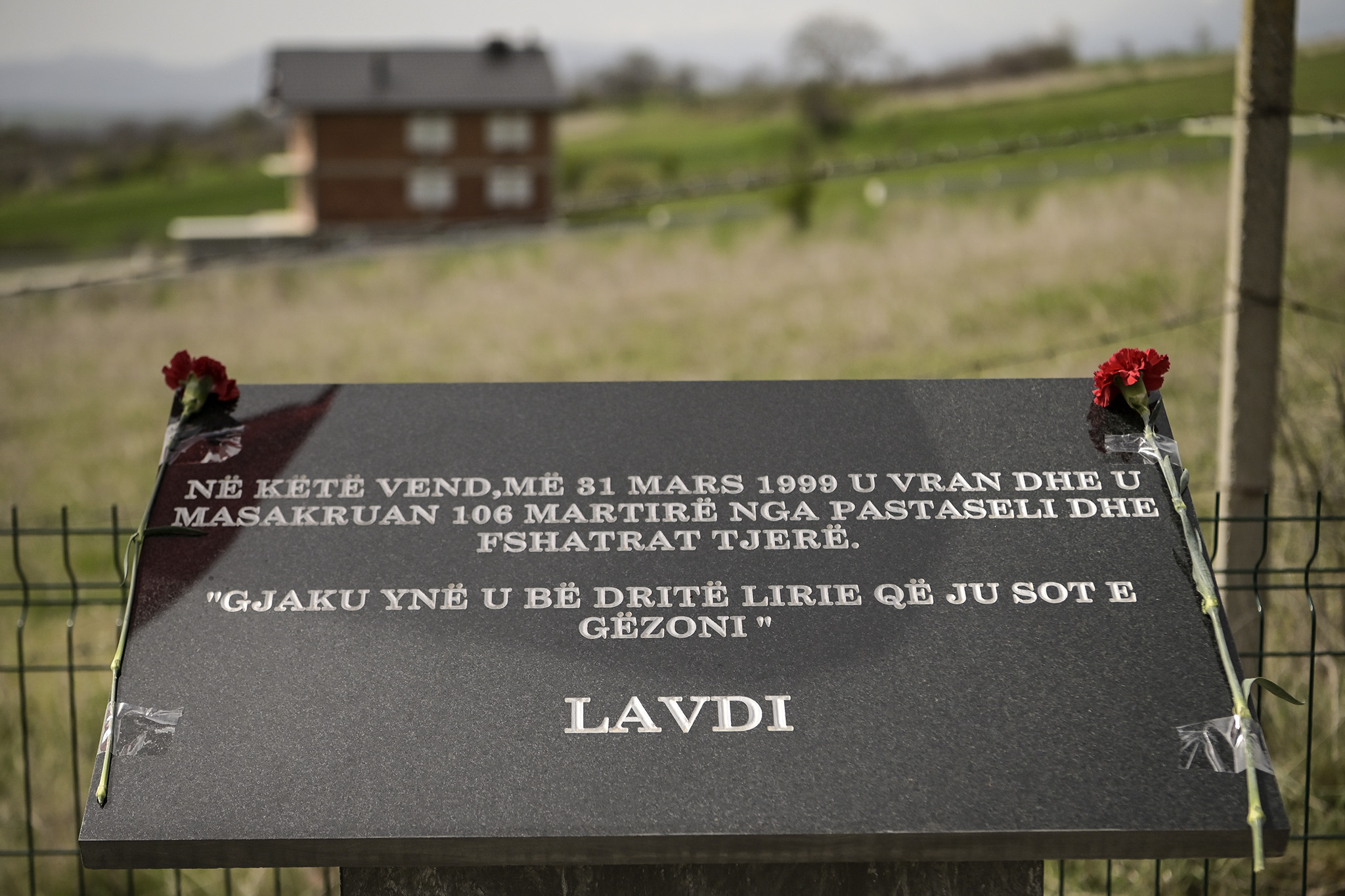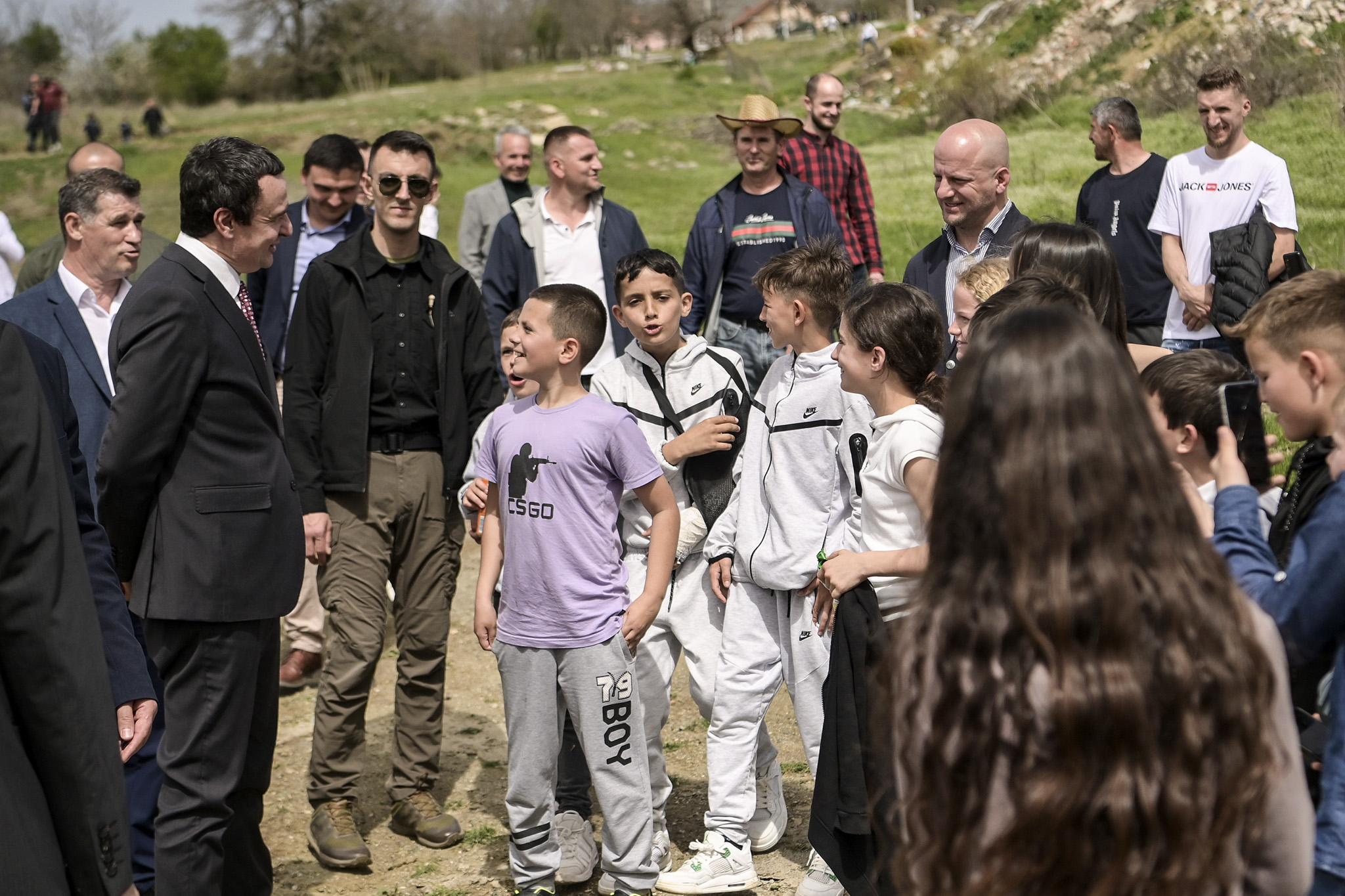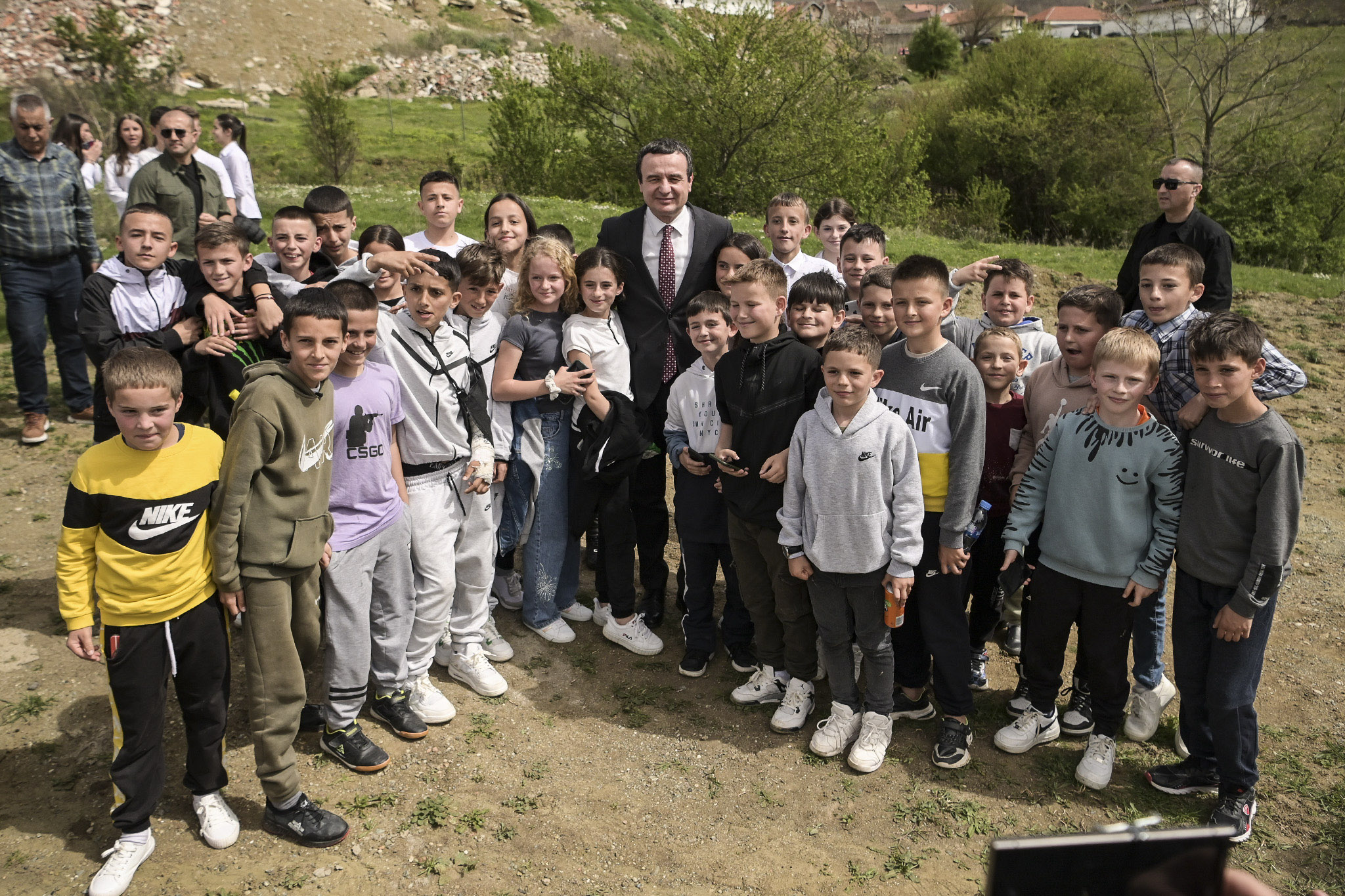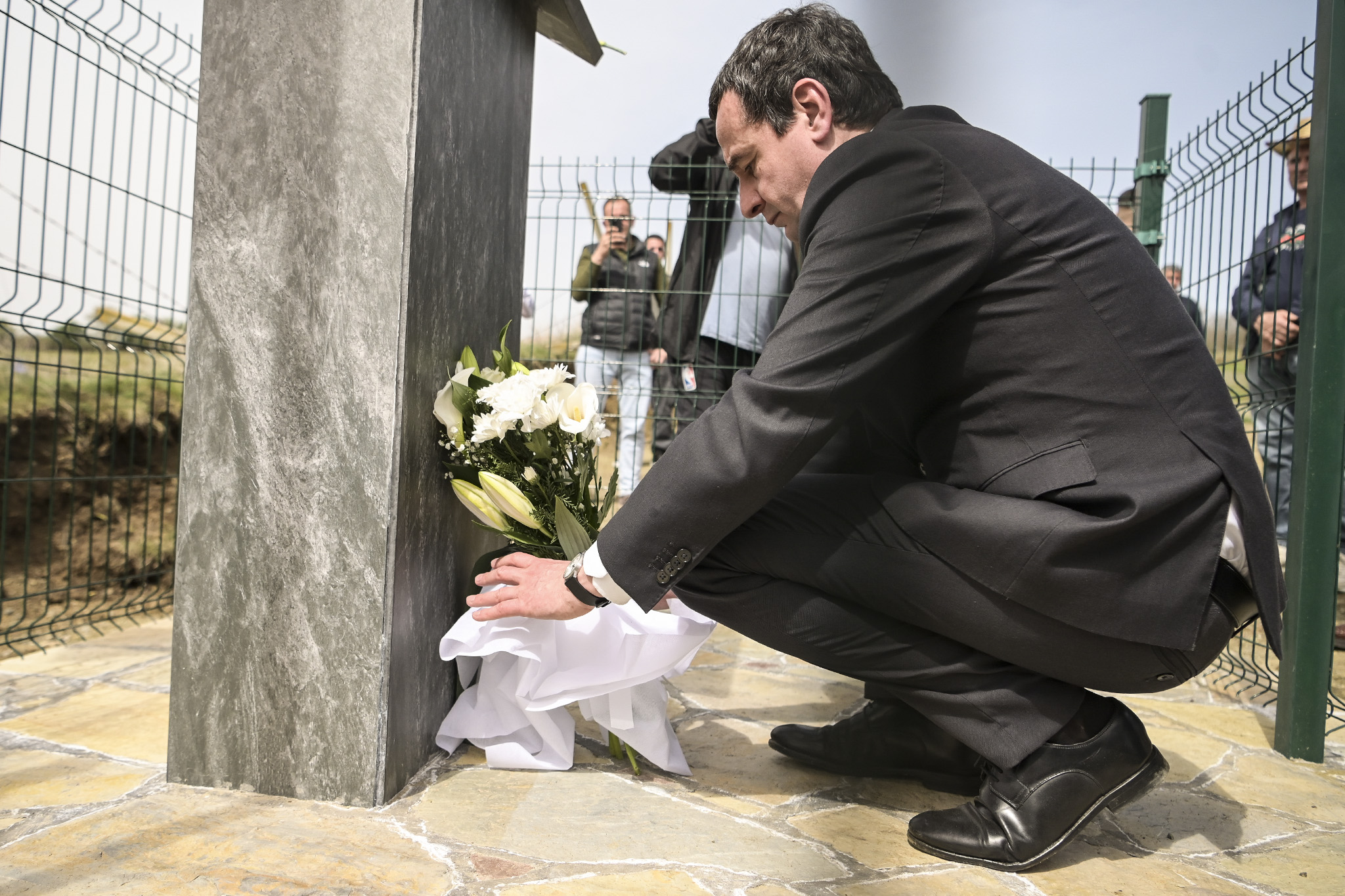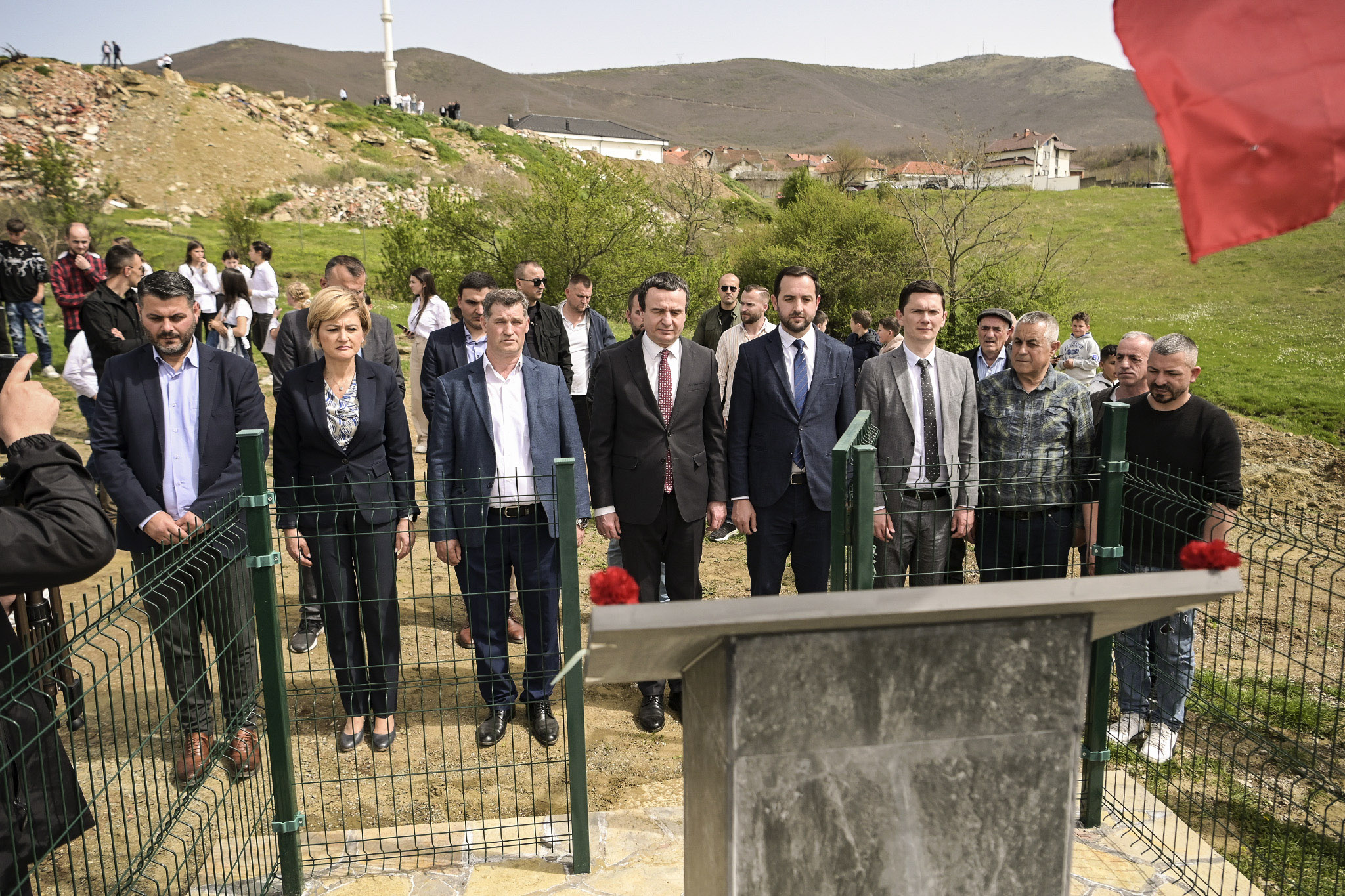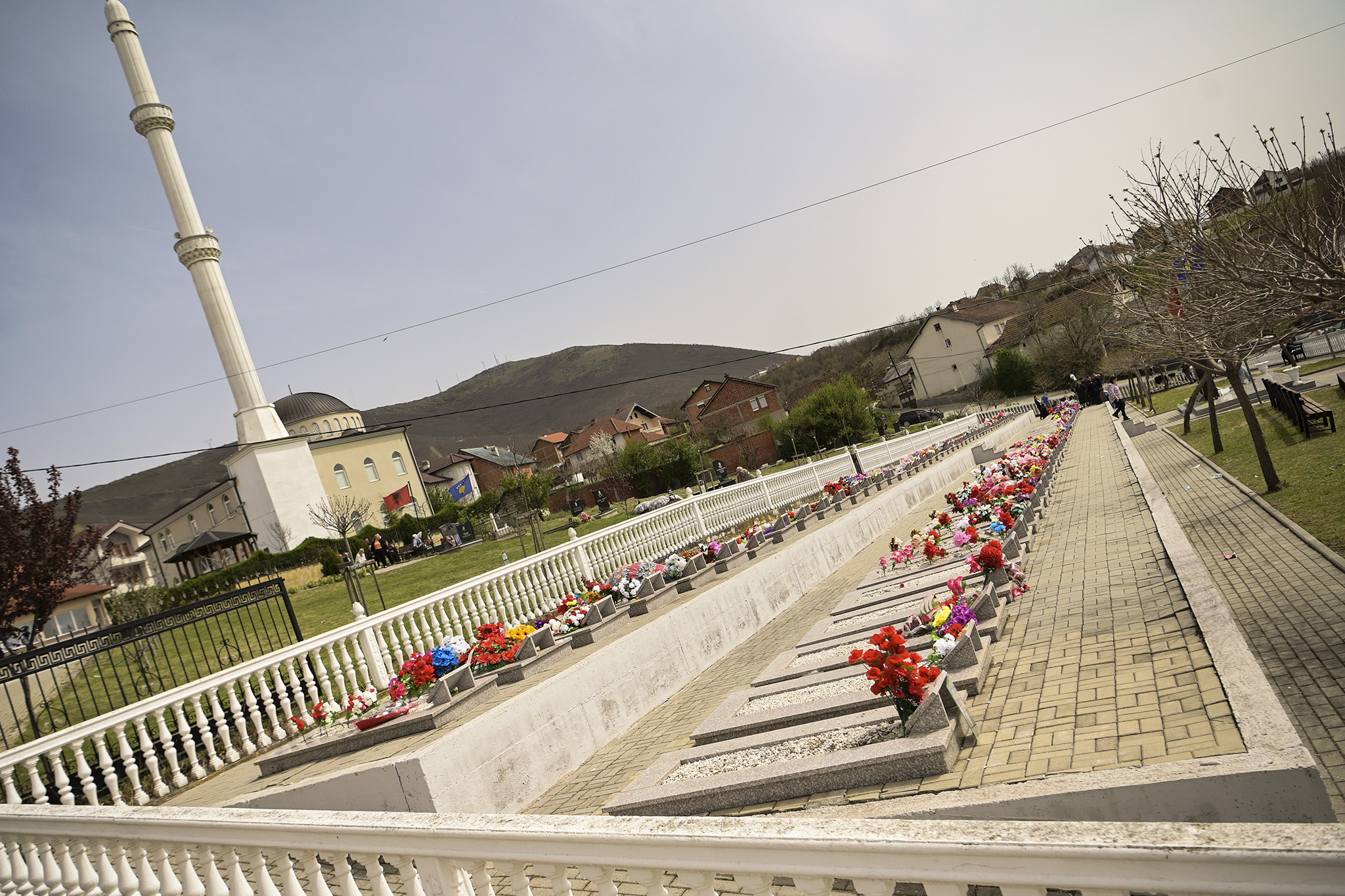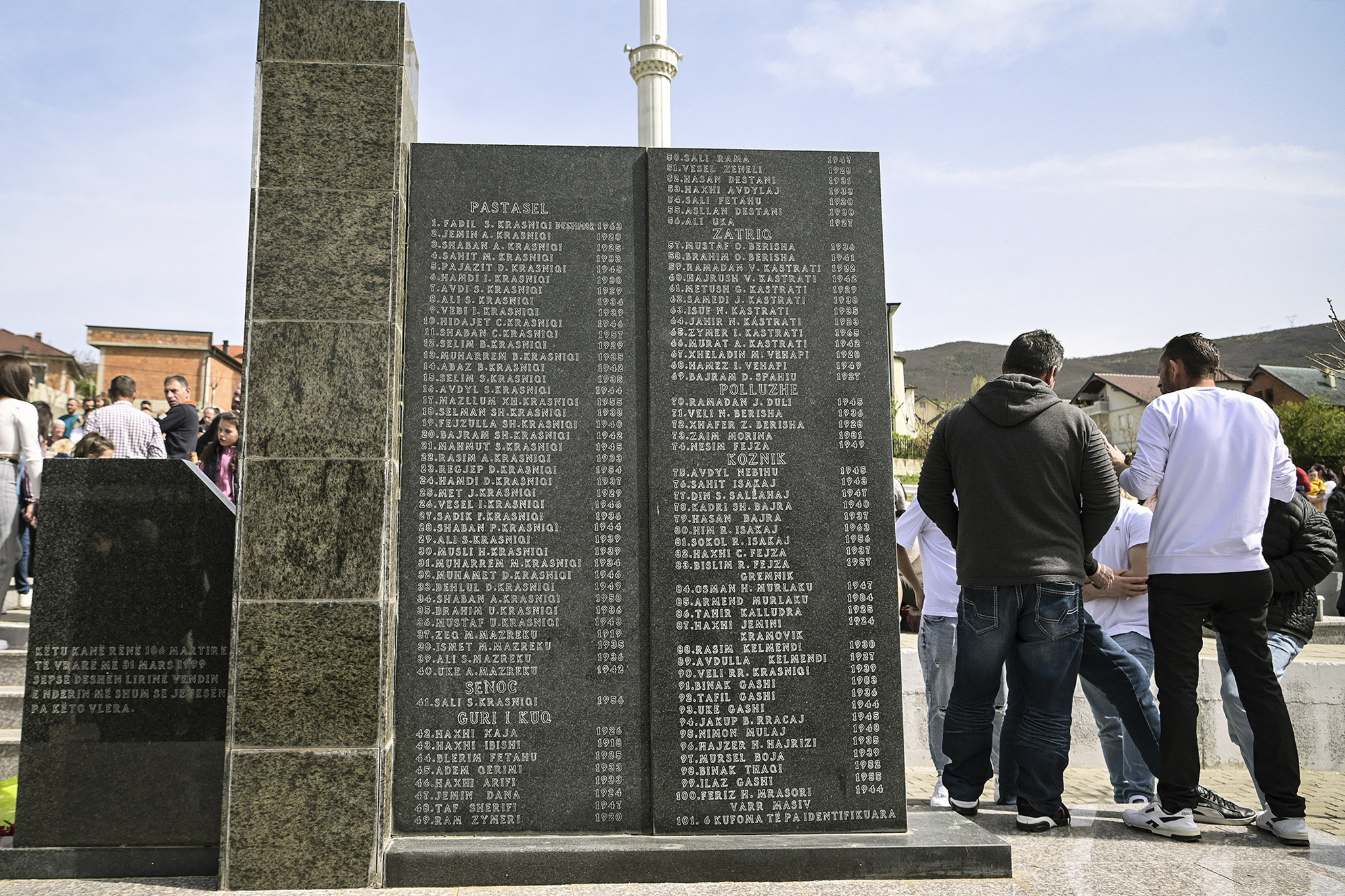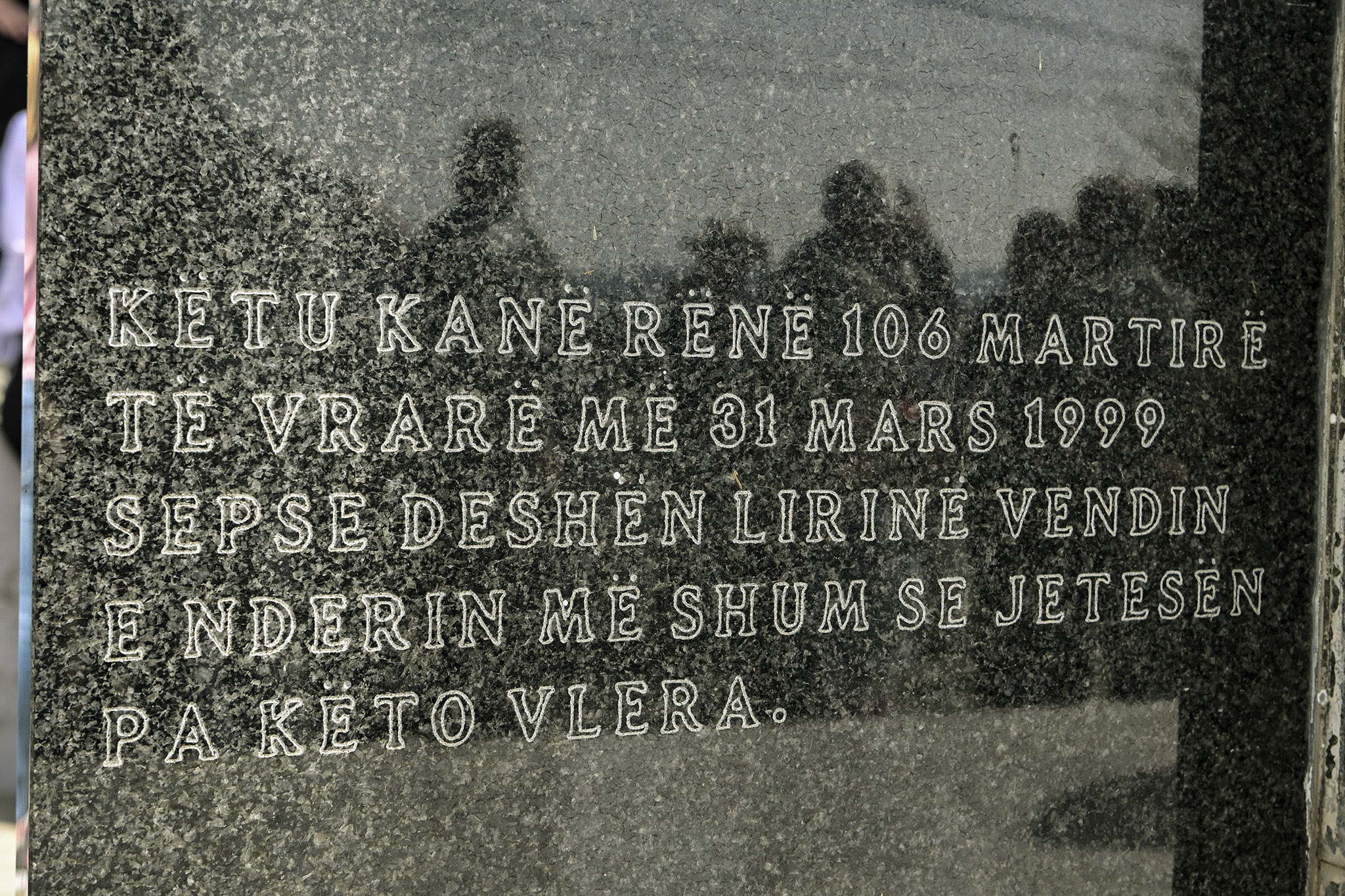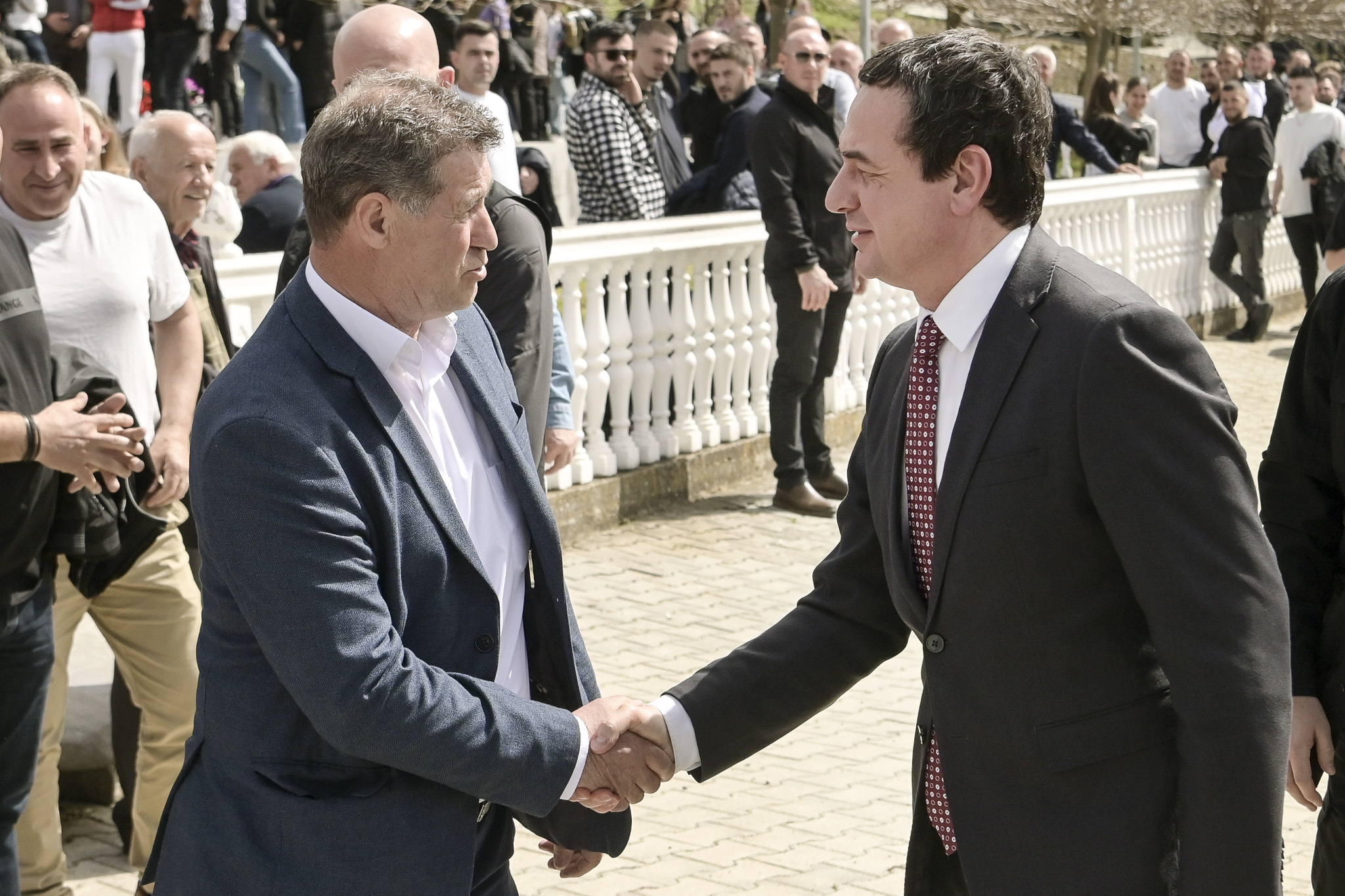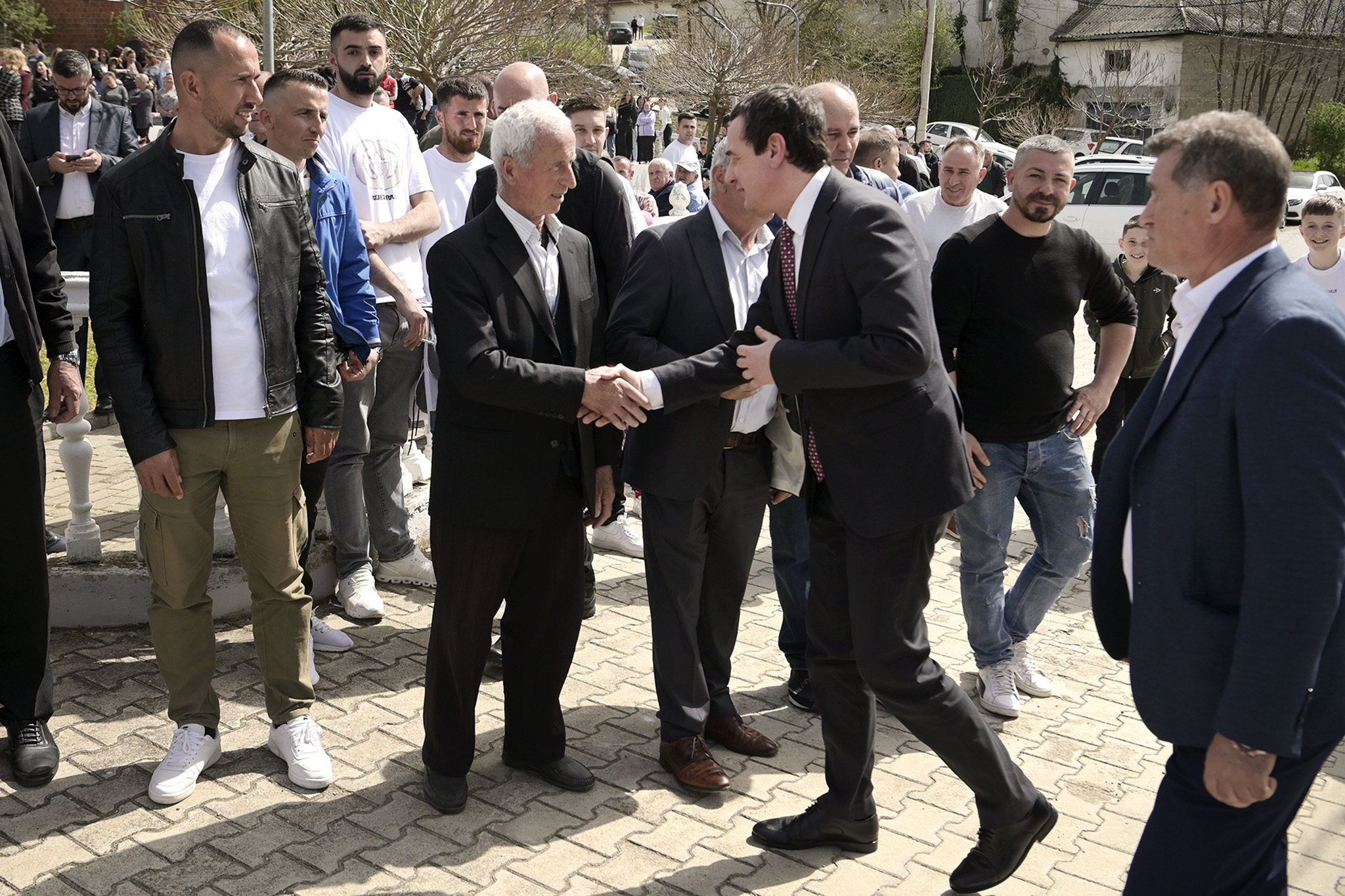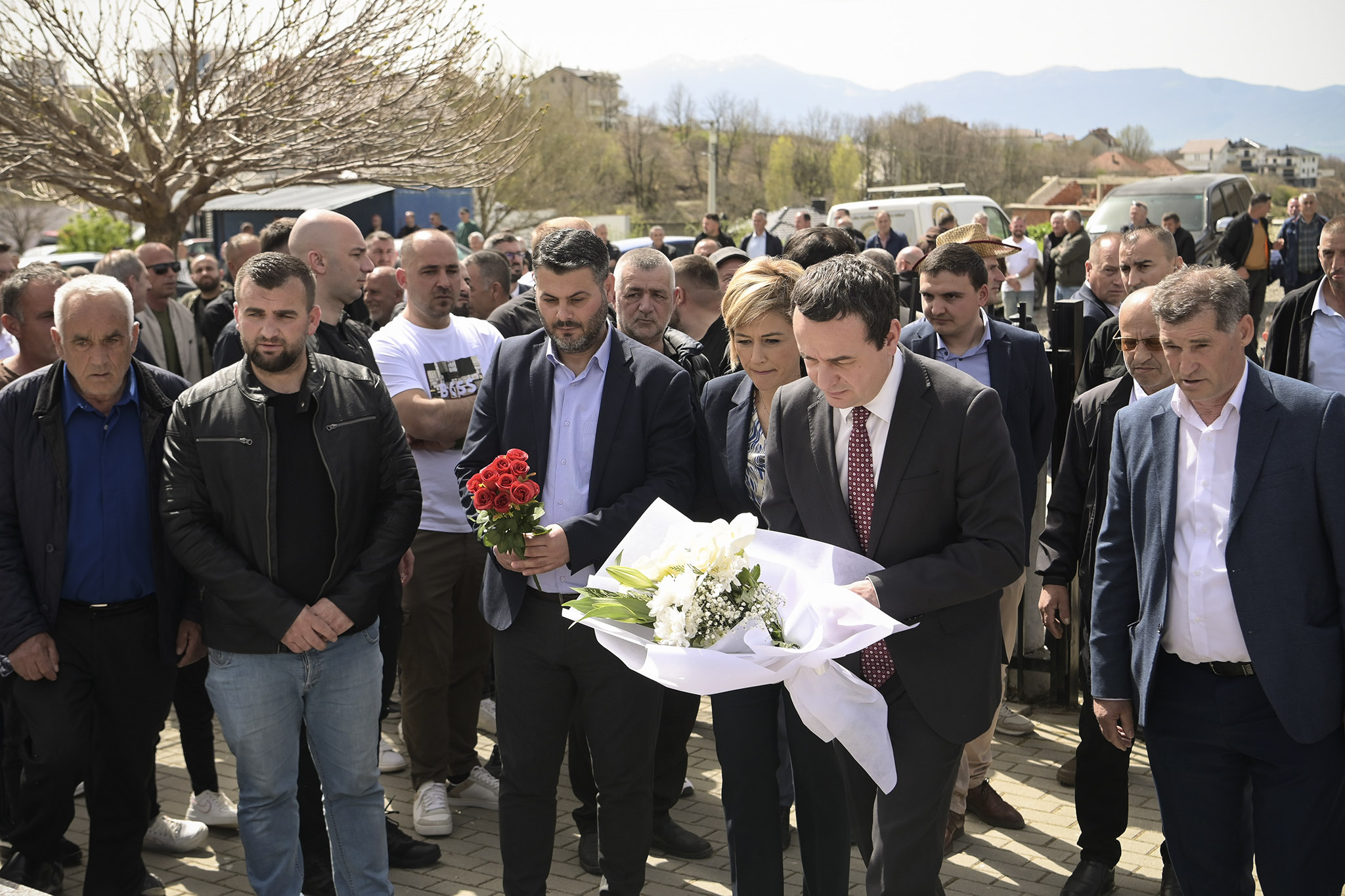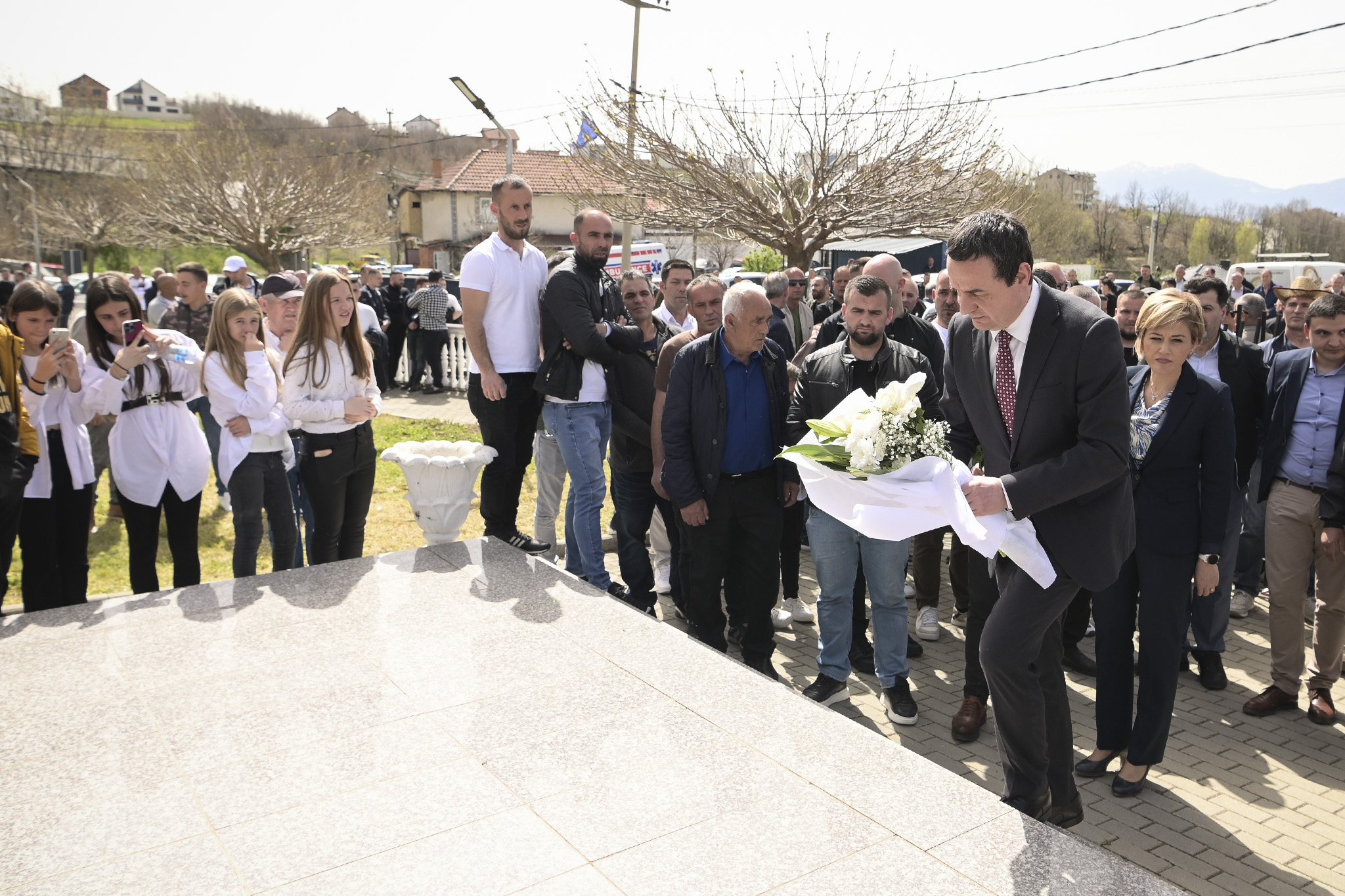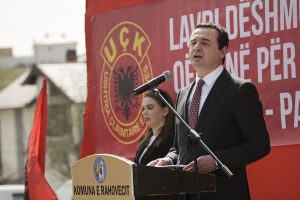Pastasel, Rahovec, March 31, 2024
“Every year, on the last evening of March, the month of March brings us back to Rahovec, and specifically here in the village of Pastasel, to commemorate and denounce the crime committed by Serbia on March 31, 1999, killing 106 unarmed Albanian civilians,” stated the Prime Minister of the Republic of Kosovo, Albin Kurti, at the commemorative gathering marking the 25th anniversary of this massacre.
“This year marks 25 years since our country was freed from Serbia. However, as we approach the 25th anniversary of our liberation, which falls in mid-June, the entire spring season is overshadowed by commemorations marking the 25th anniversary of the massacres perpetrated by the Serbian state against Albanians in Kosovo,” stated the Prime Minister. He recalled the atrocities and civilian killings across Kosovo by Serbian forces, which were executed under the directives and coordination of the highest security and political institutions of the Serbian government.
Prime Minister Kurti emphasized that the primary address for these accusations regarding these crimes, along with the war criminals individually, is the official Belgrade, with its significant legacy of international criminal responsibility and political culpability of the Serbian state, which to this day shelters and protects war criminals and fails to cooperate with justice for all the crimes and massacres that have occurred in Kosovo.
He highlighted that it’s not just the history of the massacre in Pastasel on March 31 that’s significant, but also the subsequent retrieval of bodies on April 21, as the Serbian authorities’ attempt to conceal the crime reinforces the link with the perpetrators.
“The Pastasel massacre has both witnesses and evidence that demand attention, and they should be compiled into evidence files for war crime prosecutions. It is our duty as the living to seek justice for the victims, to uphold human rights, and to preserve history, because what has happened once can happen again, elsewhere but upon Albanians. Because Serbia, unrepentant by nature, has naturally not changed its stance or purpose,” he added.
In addressing the witnesses, Prime Minister Kurti emphasized the imperative for the Prosecution in Kosovo to transform these testimonies into formal indictments.
We will spare no effort for the welfare of these children and the future of Pastasel, as we recognize that the state we enjoy and the freedom we cherish trace their origins to the blood of these martyrs and heroes of our nation, both from Pastasel and throughout Kosovo,” affirmed the Prime Minister as he concluded his speech.
Prime Minister Kurti’s full speech:
Honorable Mr. Afrim Krasniqi, Mayor of Pastasel Village,
Honorable Mr. Smajl Latifi, Mayor of the Municipality of Rahovec,
Honorable Uncle Tahir, survivor and witness to the crimes and horrors of the last century,
Honorable Members of Parliament, Mr. Avdullah Hoti, former Prime Minister, Ms. Mimoza Kusari-Lila, concurrently head of the parliamentary group, Mr. Visar Korenica,
Honorable Mr. Agon Dobruna, Deputy Minister of Finance, Labor and Transfers,
Respected family members of the victims in Pastasel,
Honorable residents of Pastasel, neighboring villages, and Rahovec in general,
This year marks 25 years since our country was freed from Serbia. As we approach the 25th anniversary of our liberation, which falls in mid-June, the entire spring season is overshadowed by commemorations marking the 25th anniversary of the massacres perpetrated by the Serbian state against Albanians in Kosovo. Especially from March 24, 1999, when NATO began its bombardment of Milosevic’s Yugoslavia, Serbia intensified and brutalized all its operational actions on the ground to expedite the genocide against Kosovo, against Albanians, the ethnic cleansing aimed at our annihilation. During this period, the armed forces and police of Serbia have killed thousands of innocent and defenseless people, while torturing, looting, and assaulting thousands of others. Additionally, they have burned and destroyed invaluable property and assets throughout Kosovo.
Every year, on the last evening of March, the month of March brings us back to Rahovec, and specifically here in the village of Pastasel, to commemorate and denounce the crime committed by Serbia on March 31, 1999, killing 106 unarmed Albanian civilians. Hence, we have gathered here today, just as we were in Upper Abri of Drenica yesterday, to honor the memory of the second massacre in that village, much like how we’ve recently commemorated the atrocities in Krusha e Madhe, Krusha e Vogël, Izbica, Podujevo, the “Dardani” neighborhood of Peja, Klladernica of Skenderaj, Suhareka, Landovica, Gjakova, Mamusha, Bellacerke, Celina, Brestoce, and numerous other locations across Kosovo.
The geography of massacres committed by Serbia against Albanians in Kosovo is widespread throughout the country, while their underlying history is almost identical, as the motives and perpetrators were the same. In every instance of recalling the massacres and crimes carried out by Serbia in Kosovo, survivors and witnesses recount how Serbian military and police units, in forcibly removing Albanians from their homes, paved the way for killings and massacres, alongside instances of looting, torture, and rape. In general, the massacres carried out during the war in Kosovo were executed not only by regular armed forces but also with the involvement of paramilitary groups, and sometimes with the assistance of local Serbs recruited as police or mobilized as paramilitaries. However, all these criminal operations were always carried out under orders and coordinated by the highest security and political institutions of the Serbian state. Therefore, crime originated from the top down. Therefore, the primary address for these accusations regarding these crimes, along with the war criminals individually, is the official Belgrade, with its significant legacy of international criminal responsibility and political culpability of the Serbian state, which to this day shelters and protects war criminals and fails to cooperate with justice for all the crimes and massacres that have occurred in Kosovo.
The residents of Pastasel, Senoc, Kaznik, Palluzha, Qifllak, Kramovik, Gur i Kuq, and Zatriq—the very villages from which the victims hailed—can provide the most accurate accounts of what occurred in Pastasel on March 31, 1999. And the best knowledge of the events of that day belongs to the 14 survivors of this massacre, who have since then recounted their experiences from that day until now. Yet, we must never settle for these accounts alone, for the sequence of events in Pastasel must be retold and reiterated every anniversary and whenever necessary. This ensures it is transmitted from one generation to the next, denounced before justice, and firmly embedded in history.
Moreover, it’s crucial to acknowledge not only the events of the massacre in Pastasel on March 31, but also the subsequent retrieval of bodies on April 21, as the Serbian authorities’ attempt to conceal the crime reinforces the link with the perpetrators. The Pastasel massacre has both witnesses and evidence that demand attention, and they should be compiled into evidence files for war crime prosecutions. It is our duty as the living to seek justice for the victims, to uphold human rights, and to preserve history, because what has happened once can happen again, elsewhere but upon Albanians. Because Serbia, unrepentant by nature, has naturally not changed its stance or purpose.
Upon my arrival here today, the historian Shkodran Imeraj presented me with a book. Within its pages were testimonies from surviving witnesses of the Pastasel massacre, along with brief biographies of each individual killed on March 31, 1999, in this very place. Thus, this book not only presents their testimonies but also highlights that we are addressing not just a number, but rather 106 individual lives, each with its own stories, backgrounds, families, and aspirations for the future, all tragically interrupted on March 31, 25 years ago.
Hence, our citizens have diligently contributed and provided their testimonies. Now, the essential next step is for the Kosovo Prosecutor’s Office to translate these testimonies into formal indictments. 10 witnesses from Pastasel have provided testimony, been interviewed, and their statements have been consolidated into an informative report by the Kosovo Police, subsequently forwarded to the Prosecutor’s Office. We have expressed our full readiness to assist the Prosecutor’s Office with everything within our capabilities and knowledge. However, we are eagerly awaiting for this informative report, containing the interviews of the 10 witnesses from Pastasel, to finally be transformed into charges and indictments against the perpetrators, executors, and instigators by the State Prosecutor’s Office. We are still waiting, still patiently waiting, 25 years after this massacre.
Yet from the Government of the Republic of Kosovo, we anticipate not only justice but also progress, our promise, and our dedication.
The encouraging development is that an auction held yesterday in Pristina has led to the decision to build a 100-megawatt solar park in Kramovik, Rahovec. This initiative will be spearheaded by a diaspora businessman, with investments originating from Kosovo, Switzerland, and Germany. These countries are the sources of the company responsible for constructing the largest solar park for electricity production. Moreover, we will spare no effort for the welfare of these children and the future of Pastasel, as we recognize that the state we enjoy and the freedom we cherish trace their origins to the blood of these martyrs and heroes of our nation, both from Pastasel and throughout Kosovo.
Therefore, the legacy of the victims of the Pastasel massacre endures, alongside our commitment to their justice and history, as well as to your progress and development!
Thank you!

